Agriculture & Environment
Mak Climate Conference Calls for Africanizing Global Resilience Discourses
Published
11 months agoon
By
Jane Anyango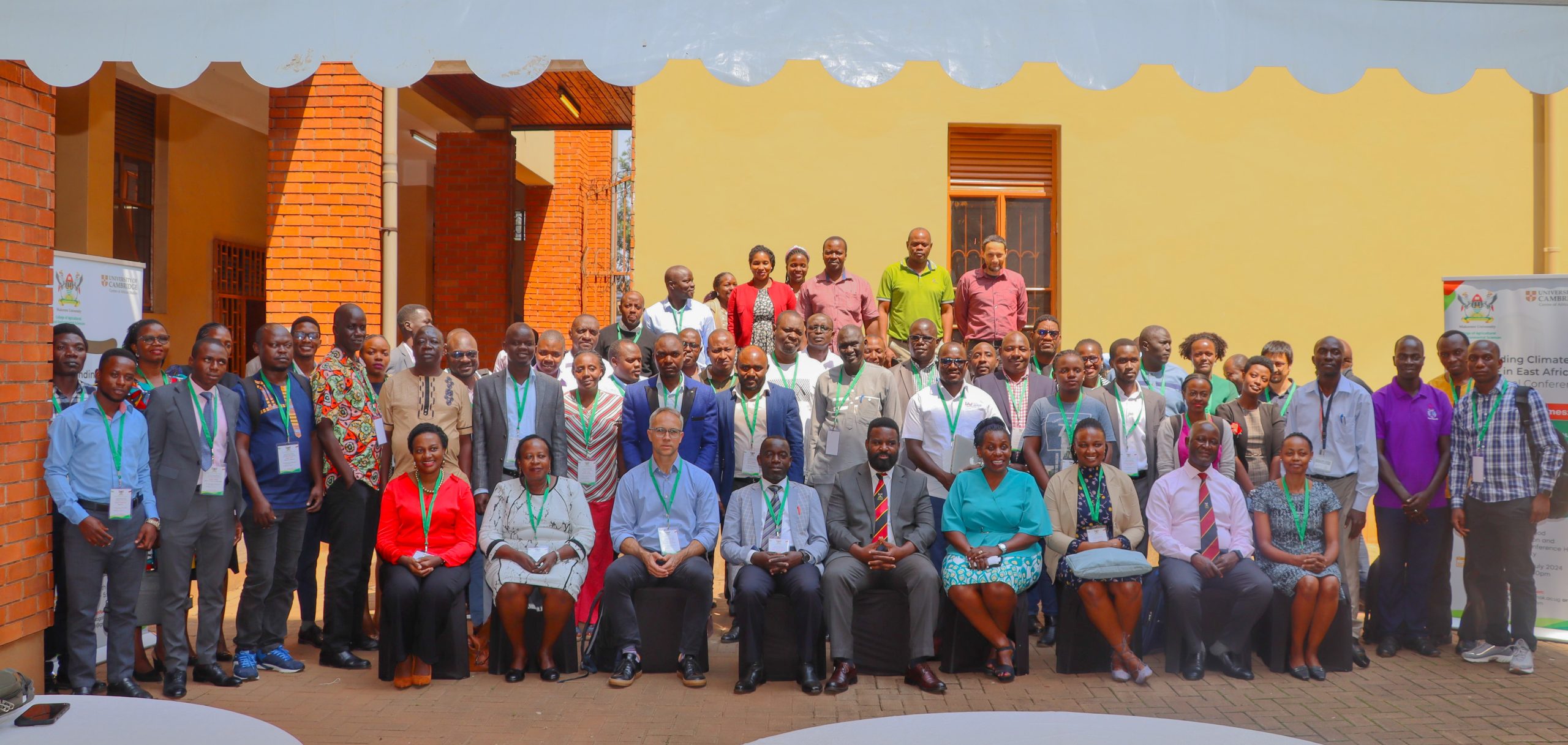
The International Climate Change Conference held at Makerere University has sparked significant discussions on the need to tailor global climate resilience and adaptation strategies to fit the African context.
The conference, themed, ” Grounding Climate Change in East Africa,” brought together Over 100 participants from eight universities in East Africa and the diaspora encompassing natural scientists, social scientists, humanities, medical, law and art scholars as well as Government ministries and agencies, the private sector and civil society organistaions to debate and propose solutions for the pressing climate issues facing East Africa.
Funded by University of Cambridge in the US, the two day conference (25th -26th July 2024) was convened by Makerere University’s Department of Environmental Managemnet in conjunction with University of Cambridge spearheaded by Prof. Justine Namaalwa , Dr. Patrick Byakaga and Adam Branch.
The conference underscored the urgent need to reframe global climate strategies to better suit African realities. Integrating local knowledge, mainstreaming climate issues across disciplines, enhancing collaboration between academia and practitioners, and valuing cultural perspectives provide a comprehensive roadmap for effective climate action in East Africa. The participants call for immediate and sustained efforts to implement these resolutions to address the climate crisis effectively.
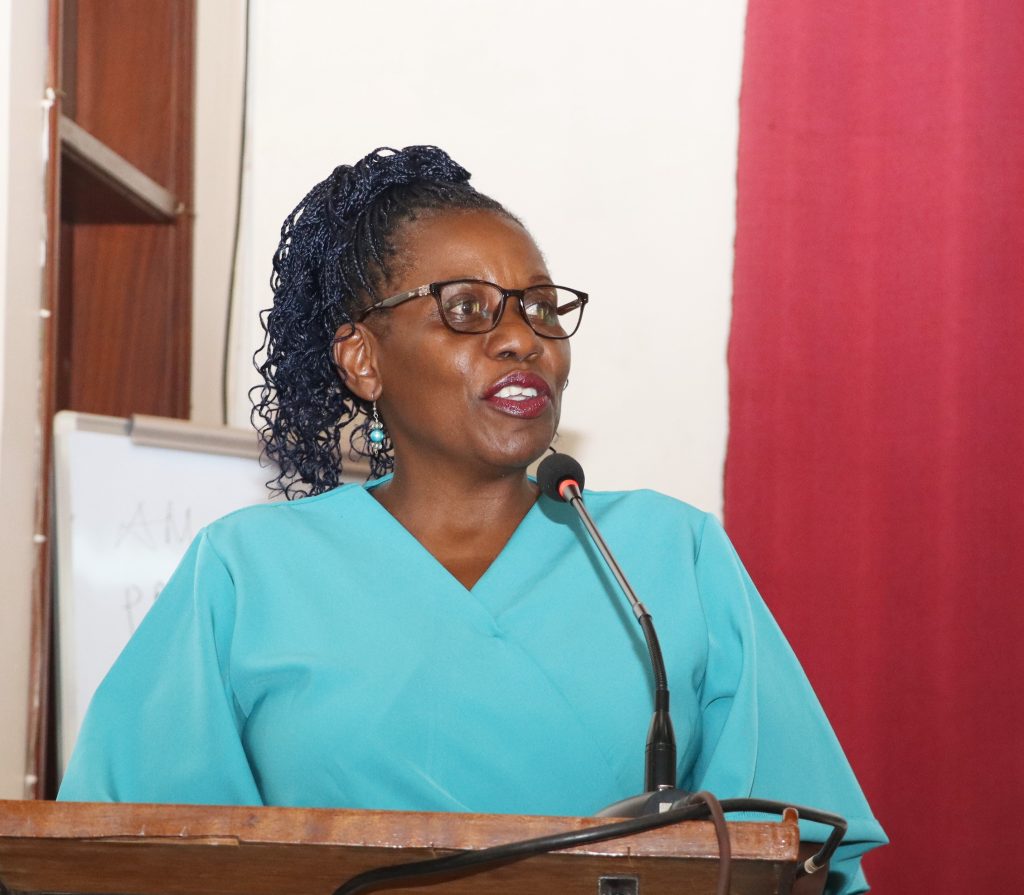
While officially opening the conference at Makerere University CEDAT Conference room, the Deputy Vice Chancellor in charge of Academic Affairs, represented by Dr. Robert Wamala, emphasized the collaborative effort between Makerere University and the University of Cambridge as a significant milestone in addressing global climate challenges.
Dr. Wamala noted that Africa is the most vulnerable continent to climate change due to its limited adaptive capacities. “The continent faces increasing climate extremes like droughts and floods, exacerbating poverty and destroying livelihoods,” he said. He highlighted the dire predictions for East Africa, mentioning significant impacts on agriculture, health, infrastructure, and businesses.
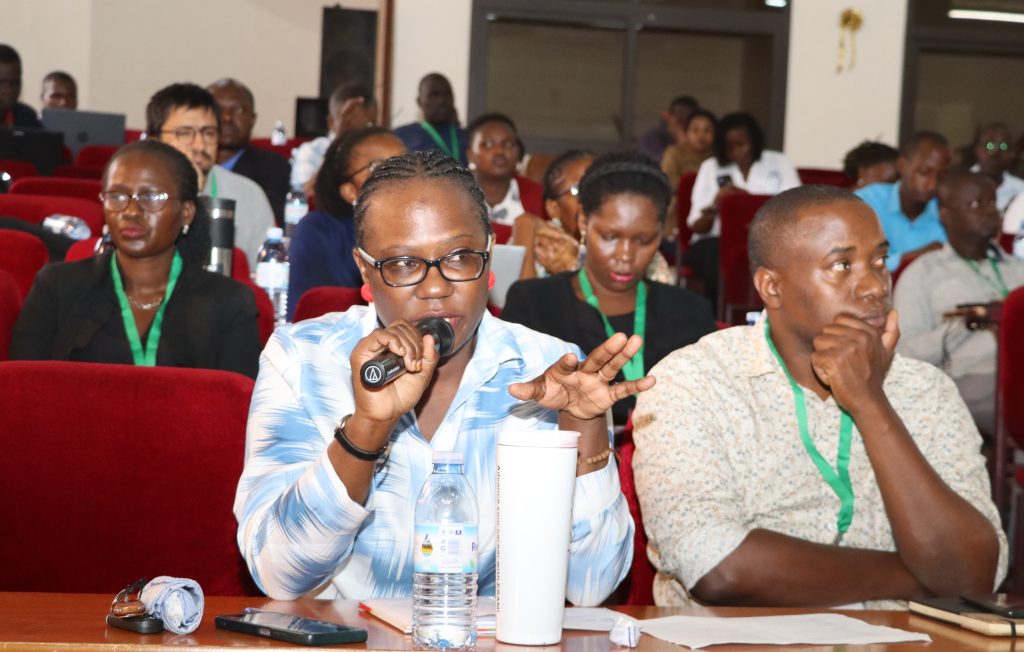
“Climate change is recognized as a constraint limiting East Africa’s efforts to attain many critical sustainable development goals,” Wamala added, stressing the urgency for sustainable solutions amid rising conflicts and insecurity in drought-prone areas.
The conference aims to foster meaningful dialogue and explore innovative solutions to climate change. Dr. Wamala encouraged active participation from attendees, stating, “We all shall be able to shape the conversations on climate change based on our unique experiences, insights, and knowledge.”
He highlighted three key themes for the conference: Africanizing global discourses of resilience and adaptation, Deepening climate justice from East African perspectives, and Grounding climate actions by addressing constraints and building momentum. “These themes encapsulate the manifest nature of climate change and the need for knowledge when exploring opportunities for effectively addressing the challenge,” he explained.
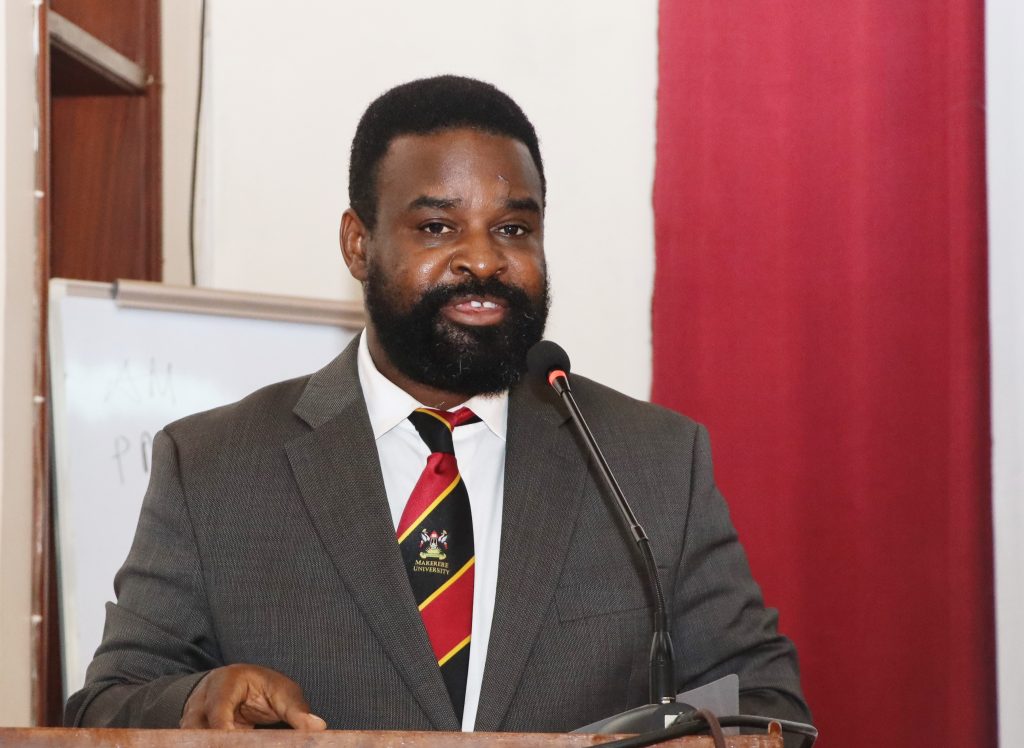
Dr. Wamala concluded by expressing gratitude to the Department of Environmental Management and international partners, reaffirming Makerere University‘s commitment to addressing global challenges. “Together, let us interrogate the complexities of climate change and trigger discussions on tangible actions that will shape a sustainable future,” Dr. Wamala urged.
Co-Convener Highlights the Power of Collaboration in Addressing Climate Change
Representing the Principal of the College of Agricultural and Environmental Sciences, Co-Convener Assoc. Prof. Justine Namaalwa, who is also Chair of the Department of Environmental Management, emphasized the critical role of academic institutions in tackling climate change. Namaalwa underscored that the conference represents a culmination of the college’s mandate to advance research and education in agricultural and environmental sciences.
Prof. Namaalwa praised the collaborative spirit of the conference, noting, “This event is a testament to the power of collaboration and our shared vision to address the pressing issue of climate change in our region.” She highlighted the diverse range of participants, including academics, government officials, and private sector representatives, all coming together with the common goal of enhancing understanding and shaping effective climate actions tailored to East Africa.
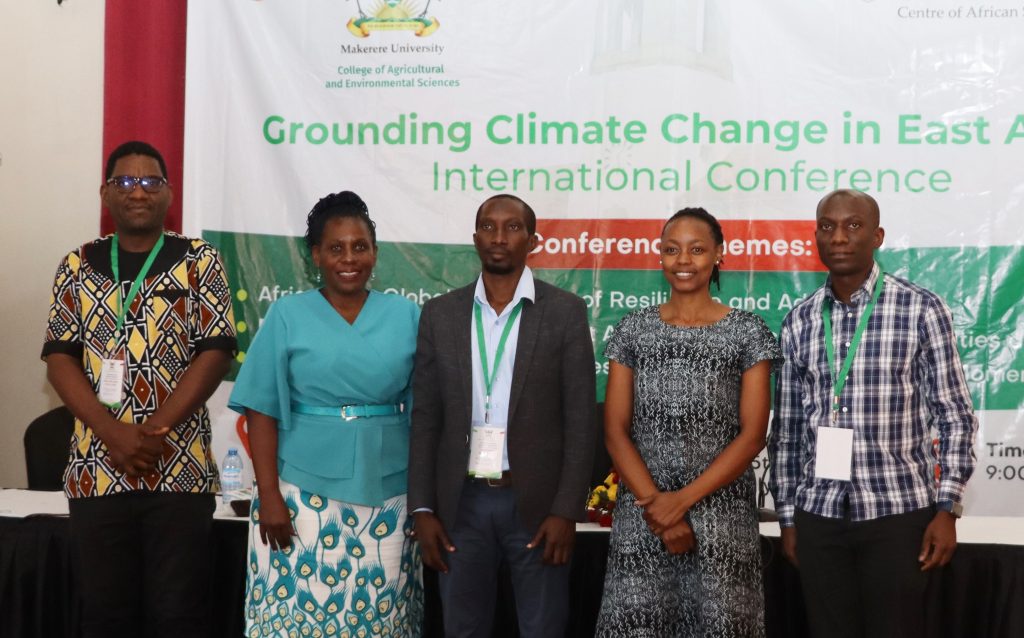
She expressed her gratitude towards the leadership of Makerere University and the Centre of African Studies at the University of Cambridge for their significant contributions. “Our appreciation goes to our esteemed partners at the Centre of African Studies, University of Cambridge. Your invaluable partnership and mutual respect have been instrumental in making this conference a reality,” Prof. Namaalwa stated.
Addressing the conference attendees, Namaalwa called for a multidisciplinary approach to climate change. “Climate change is a multifaceted issue that intersects with various fields, including environmental science, agriculture, economics, law, medicine, sociology, and public policy. By integrating insights from these diverse disciplines, we can develop comprehensive and effective actions tailored to our region’s specific needs.” she said.
She urged participants to focus on opportunities for innovation and progress. “The challenges posed by climate change are immense, but so are the opportunities for innovation. Let us emphasize the potential for positive change and work together to build resilient communities, protect our ecosystems, and foster sustainable development.”
In conclusion, Prof. Namaalwa expressed confidence that the conference would act as a catalyst for meaningful action and new partnerships. “I am confident that this conference will inspire new initiatives and collaborations aimed at addressing climate change effectively. Let us seize this opportunity to exchange ideas, share best practices, and forge lasting collaborations for a better future.”
Calls for Unified Climate Research, Localized Solutions, and Redefining Global Models
The Head of African Studies at the University of Cambridge, Prof. Adam Branch outlined three main intellectual and institutional goals for the “Grounding Climate Change in East Africa” conference, emphasizing the need to address fragmentation in climate research, political transformations driven by climate discourse, and the influence of Western-dominated climate models.
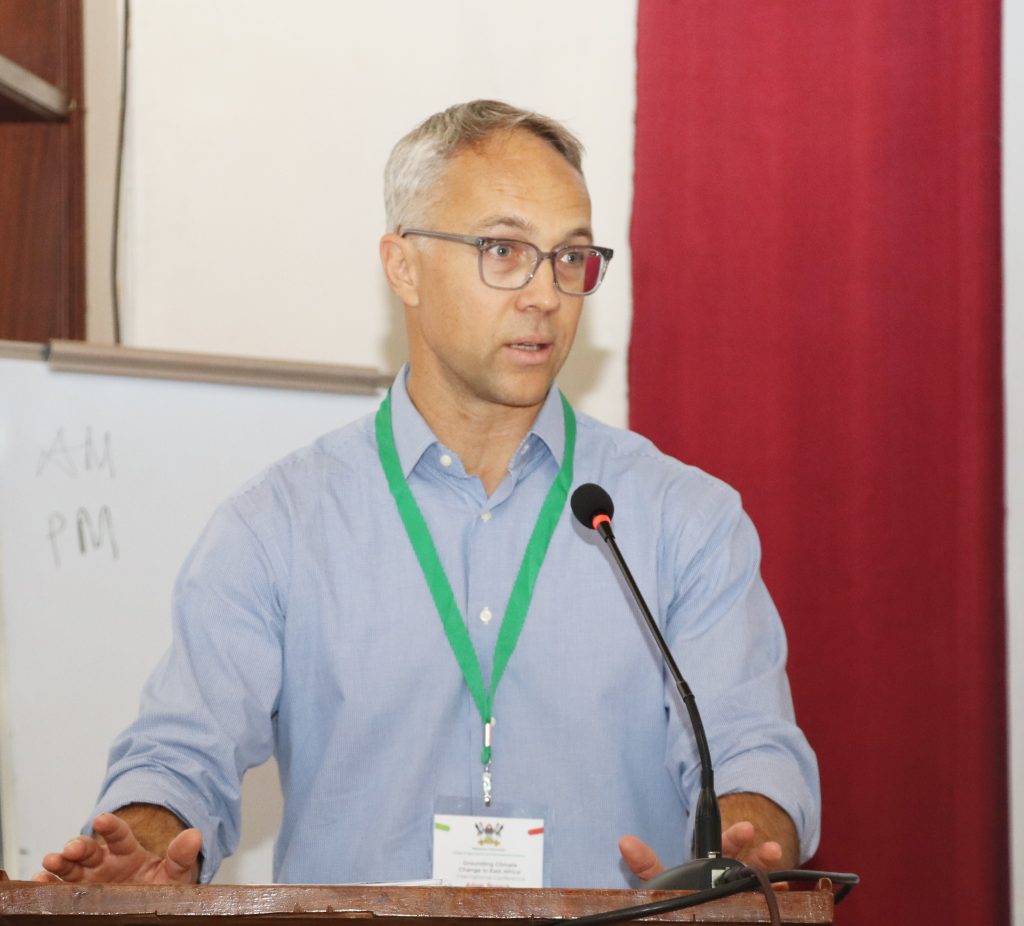
Prof. Branch pointed out the fragmentation in climate change research driven by donor priorities. He explained that much of the current research is conducted under varied agendas and lacks coordination among different disciplines and institutions. “The conference aims to bring together researchers from various disciplines and universities to build common agendas, discuss shared challenges, and address the fragmentation caused by donor-driven priorities,” he said.
Branch addressed the political and social transformations triggered by climate change discussions. He noted that climate change is driving significant shifts in policies, institutional changes, and civil society agendas. “Given the broad impacts of climate change, it is crucial to create a platform where civil society, activists, academics, practitioners, and political leaders can reflect on these changes and collaborate on navigating the evolving political and social landscape,” Prof. Branch stated.
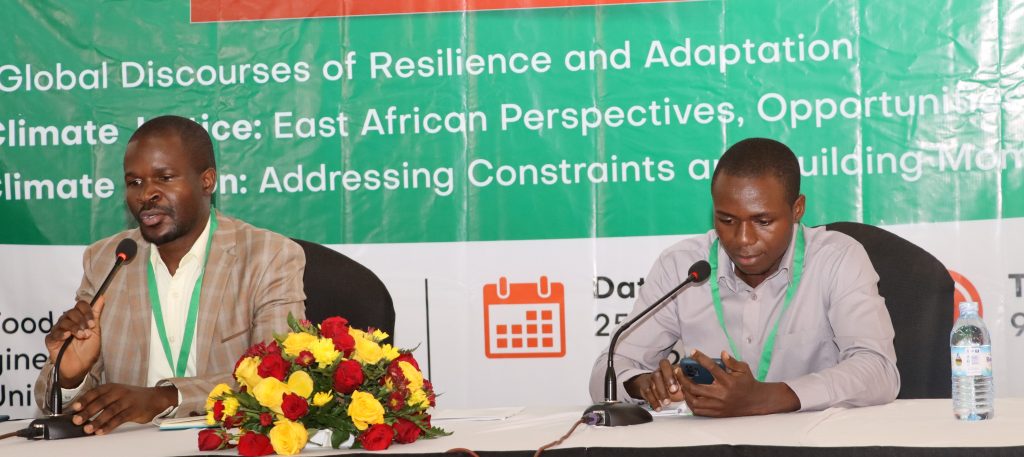
Prof. Branch also discussed the need to challenge the dominance of Western climate models and agendas. He highlighted concerns about the relevance of global climate policies and models to African contexts, emphasizing that these frameworks often overlook Africa’s environmental histories and adaptation practices. “To ensure that climate actions are relevant and effective, we must ground climate change discussions in African environmental histories and needs, driven by African researchers. This approach will help avoid perpetuating climate injustice and promote genuine environmental justice,” he asserted.
He concluded by reaffirming the importance of the conference in addressing these key issues, fostering interdisciplinary collaboration, and ensuring that climate strategies are tailored to the unique needs and histories of African societies.
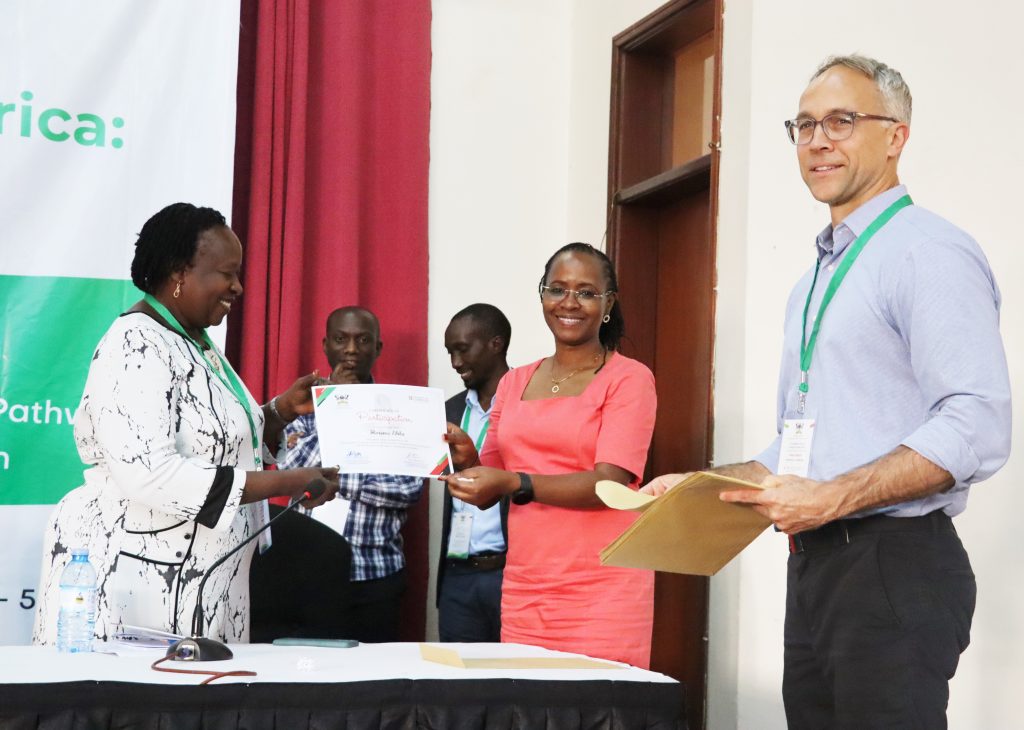
Conference Highlights Multidisciplinary Approaches to Climate Change
The conference, held over two days, explored three core themes: Africanizing global discourses of resilience and adaptation; Deepening climate justice with East African perspectives, and Grounding climate actions by addressing constraints and building momentum.
The conference attracted eight universities in East Africa and beyond including Gulu University, Makerere University, University of Cambridge, Uganda Martyrs University Nkozi, University of Dodoma, University of Dar es Salaam, Lira University, and Addis Ababa University. A total of 28 scholarly papers were presented, alongside three keynote speeches and six panel discussions.
During the opening, agenda setting and overview roundtable, Prof. Justine Namaalwa emphasized the critical role of research in shaping climate actions. Dr. Patrick Byakagaba discussed the importance of harnessing synergies between universities and civil society organizations for climate resilience and justice.
Byakagaba emphasized the multifaceted nature of climate justice, stating, “Climate change disproportionately impacts vulnerable populations, and achieving climate justice means addressing these disparities. It involves not only fair distribution of costs and benefits but also correcting historical wrongs.” He explained that climate justice is deeply intertwined with both distributive justice—where wealthier nations shoulder more responsibility—and corrective justice, which seeks to address past inequities.
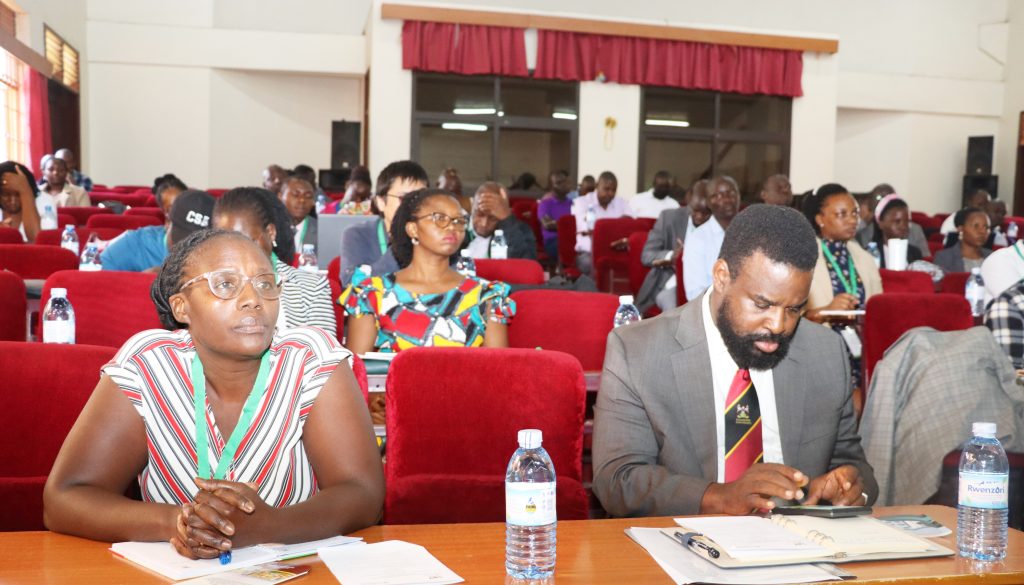
Byakagaba highlighted the growing involvement of civil society organizations (CSOs) and governments in adopting climate justice perspectives. “while some Global South nations are enacting climate laws that incorporate human rights and intergenerational considerations, successes in climate litigation have been sparse.” This is often due to the technical challenge of proving causal links between human activities and localized climate impacts. He stressed that “robust evidence from technical experts, often based in universities, is essential to support these legal claims.”
Universities, once considered detached from real-world problems, are increasingly aligning their research with societal needs and community priorities. Dr. Byakagaba noted, “The collaboration between universities and CSOs is crucial. Universities have the research capabilities to provide actionable insights, while CSOs offer on-the-ground perspectives and practical experience.” This partnership is seen as a vital strategy for developing and implementing effective climate-resilient interventions.
Policy advocacy for climate justice relies heavily on rigorous, objective research. Dr. Byakagaba explained, “Countries with strong climate laws often have advisory committees that include technical experts from academia and civil society. These committees are vital for shaping and implementing effective climate strategies.” However, many regional and local governments in East Africa still face challenges in creating actionable climate plans.
Addressing barriers to effective university-CSO partnerships—such as power imbalances and differing timelines—requires significant reform. Dr. Byakagaba concluded, “Overcoming these challenges will necessitate a shift in mindset within both universities and CSOs. Strong collaborations between these institutions can drive meaningful climate action and address the pressing challenges of climate change.”
Additionally, Adam Branch and Dr. Florence Ebila presented on extending the climate change debate and engendering climate change action, respectively.The conference featured three keynote addresses. Mathew Bukhi Mabele from the University of Dodoma presented on “Green Extractivism and a Surging Commodity Frontier in African Carbon Forestry.” On the second day, Laury Ocen delivered a keynote on “Framing Climate Security within the Historical Lenses of Oral Texts,” while Aaron Werikhe and Kimono Jamil from the Ministry of Finance and the Ministry of Water and Environment discussed “Mainstreaming Climate Change in National and Local Government Budgets in Uganda: Opportunities and Challenges.”
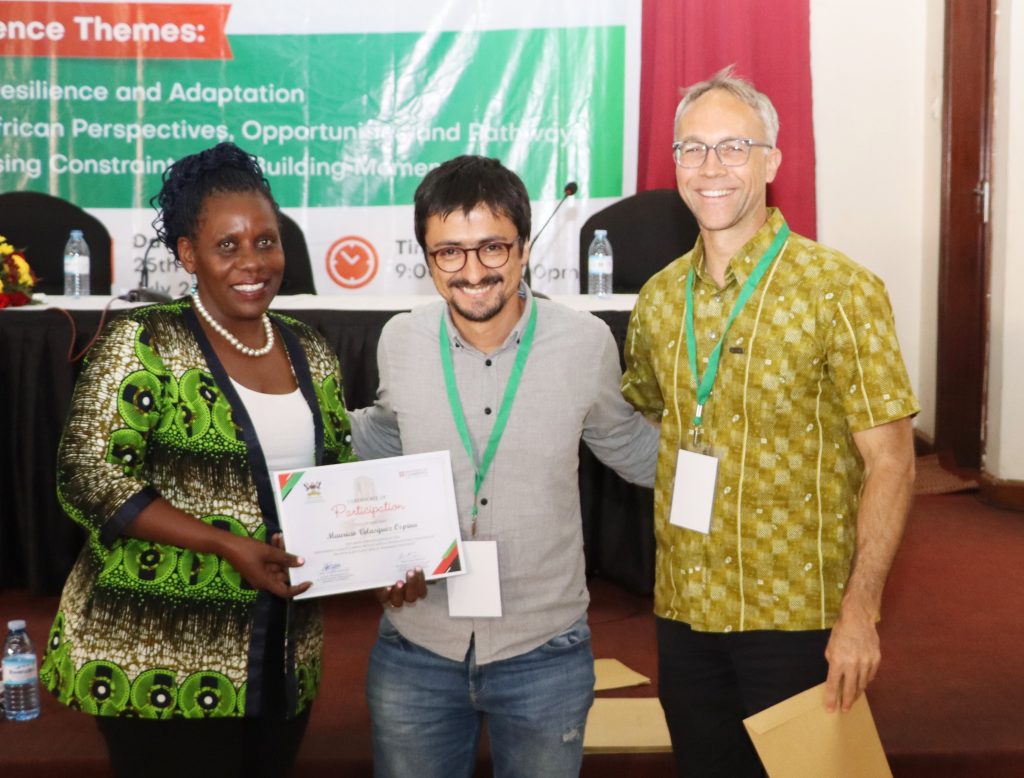
Panel discussions covered a range of topics. Panel One, chaired by Prof. Namaalwa, included debates on climate change politics, data, and justice. Panel Two, led by Solomon Olum, focused on land, natural resources, and livelihoods, with discussions on gender dynamics, carbon hegemony, and conservation agriculture. Panel Three, chaired by Arthur Oworo, explored culture and climate change, with presentations on literature, disaster risk reduction, and indigenous knowledge.
Day Two Featured Panel Four, chaired by Laury Ocen, which examined environmental hazards and social vulnerability, including studies on ecosystems, biodiversity, and the impacts of climate change in East Africa. Panel Five, led by Irene Anying, presented research on local climate knowledge and adaptation practices, while Panel Six, chaired by Adam Branch, addressed land, displacement, and ecology, featuring discussions on refugee self-reliance, land tenure, and sustainable development.
The conference successfully fostered a multidisciplinary dialogue on climate change, emphasizing the need for collaborative and context-specific solutions to address the challenges facing East Africa and beyond.
Communiqué: Key Takeaways and Resolutions from the Conference
The conference addressed several critical issues, providing clear resolutions for tackling climate change in East Africa. A major focus was the pivotal role of academia in shaping climate adaptation and resilience strategies for Africa.
Universities and research institutions were urged to lead by developing curricula and research agendas that incorporate African perspectives and solutions. This includes supporting civil society organizations (CSOs) with accessible information and fostering collaborative actions. There was a strong call to mainstream climate change across all academic disciplines, advocating for interdisciplinary approaches and ensuring that all fields, including the humanities, contribute to climate solutions.
The importance of evidence-based climate action was emphasized. It was highlighted that research should inform decision-making processes to ensure that interventions are grounded in solid evidence. This approach is crucial for implementing effective strategies to address climate change challenges.
The conference also underscored the need for research to be deliberate and intentional in influencing policy and practice. Researchers were encouraged not only to generate evidence but also to actively engage in refining and rebutting existing policies and practices. This focused effort aims to ensure that research findings contribute directly to improving climate policies and practices.
Researchers were urged to contribute to climate change mitigation efforts through targeted research that provides actionable insights and solutions for reducing greenhouse gas emissions and mitigating climate impacts. Additionally, there was a call for researchers to provide evidence-based results that support both national and international climate policy processes, including the Nationally Determined Contributions (NDCs). This will ensure that climate strategies are informed by the latest research findings.
Academia is expected to play a proactive role in supporting policy and strategy development. Researchers were urged to align their work with policy processes, offering valuable data and analysis to shape and refine climate strategies. This commitment is crucial for bridging the gap between research and practical climate action, ensuring that policies are effective and grounded in robust scientific evidence.
The conference also emphasized the urgent need to realign global climate strategies to better address African realities. By integrating local knowledge, mainstreaming climate issues across disciplines, enhancing collaboration between academia and practitioners, and valuing cultural perspectives, participants laid out a comprehensive roadmap for effective climate action in East Africa. Immediate and sustained efforts are required to implement these resolutions and address the climate crisis effectively.
Local knowledge and perspectives were highlighted, with the conference stressing that societies affected by climate change should not only be seen as victims but also as repositories of valuable indigenous knowledge. Challenging conventional notions of climate change and integrating local insights is essential for developing more effective and contextually relevant solutions.
Climate change was recognized as a cross-cutting issue impacting various sectors of society. The conference underscored the necessity of addressing climate change across political, economic, social, and scientific fields. Comprehensive engagement from all academic disciplines, including the humanities, is vital. Integrating diverse perspectives will ensure a holistic approach to tackling climate change and its multifaceted impacts.
Sustainable charcoal practices were identified as a critical area for environmental conservation and local livelihoods. The sub-region was highlighted as a key area for implementing such initiatives, emphasizing the need to mitigate deforestation and support community well-being.
Participants were encouraged to become proactive climate change activists, advocate for climate considerations in budget plans, and integrate these issues into everyday practices. Effective climate action requires collaboration between academia and CSOs to create and implement meaningful policies and initiatives.
Communication strategies were addressed, with a focus on using vernacular languages to effectively communicate climate change. This approach is crucial for bridging the gap between universal and local understandings, making climate information more accessible and relevant to diverse communities.
The conference stressed the need for a critical approach to data justice and climate modeling. There was a call for examining climate models and data with consideration of historical injustices, ensuring they inform policies and practices thoughtfully. Caution was advised to avoid perpetuating inequalities or misrepresenting local conditions.
Cultural perspectives and environmental justice were also highlighted. Cultural values and traditional knowledge play a crucial role in conserving natural resources and promoting environmental sustainability. The rich content of oral culture can offer valuable insights for developing effective climate change responses and resilience strategies.
Jane Anyango
Principal Communication Officer
You may like
-
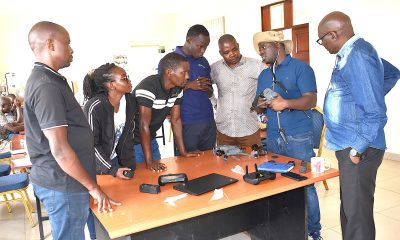

NbS4Tea Project Team Makes Great Progress, Deploys Drones for Data Collection
-
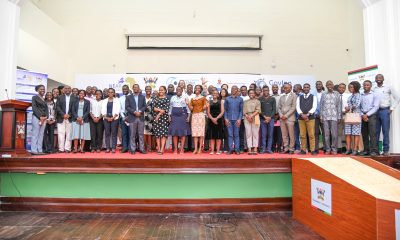

Strengthening Europe-Africa Higher Education Collaboration through the NEAR-ER Project
-
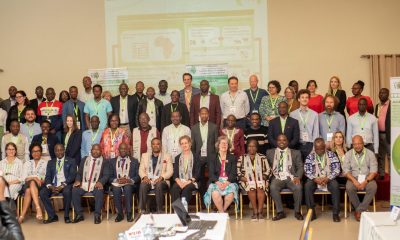

PREPARE4VBD Project Holds Final Workshop in Uganda; A Landmark in Vector-Borne Disease Preparedness
-
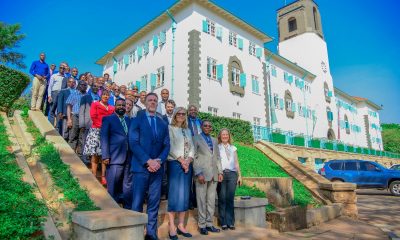

Amb. Tone Tinnes Visits Mak, Gains Insight into NORHED II Projects
-
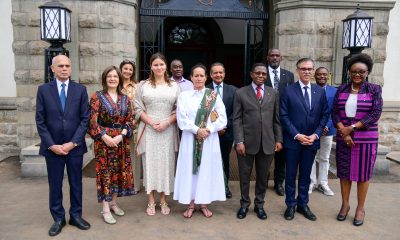

Princess Zahra Aga Khan Visits Mak, Tours Innovation Pod
-
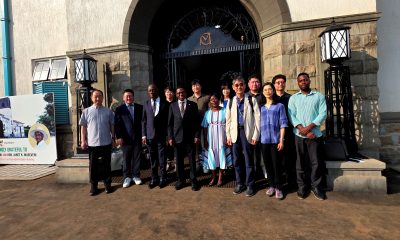

Makerere set to benefit from Project to Enhance Distance Education Environment
Agriculture & Environment
NbS4Tea Project Team Makes Great Progress, Deploys Drones for Data Collection
Published
6 days agoon
June 24, 2025
****Funded by the Danish Fellowship Centre under Denmark’s Ministry of Foreign Affairs, NbS4Tea is a five-year initiative aimed at enhancing climate resilience and tea productivity in Uganda.
Launch of drones for data collection
The Nature-based Solutions for Tea (NbS4Tea) project has registered a significant milestone with the successful deployment of drones to improve environmental and agricultural data collection.
On 19th June 2025, the project team officially launched the drones at the Rwebitaba Tea Research Centre in Kyenjojo District, the project’s main research hub. The launch event included hands-on training sessions by Mr. Timothy Mutungi, a certified Remote Sensing Drone Pilot. Mr. Mutungi provided detailed instruction on drone operation, safety procedures, and data acquisition techniques specifically tailored to the project’s goals. The training was attended the core NbS4Tea researchers as well as students supported by the project.

By utilizing drone technology, the team will be able to capture high-resolution imagery and gather critical environmental data across vast tea-growing areas. This will enable more precise assessments of biodiversity, soil health, water use, and overall ecosystem services. The valuable insights generated will guide the development of sustainable, nature-based agricultural practices with the potential for widespread adoption throughout the tea industry.
About the NbS4Tea Project
NbS4Tea is a five-year initiative aimed at enhancing climate resilience and tea productivity in Uganda. Funded by the Danish Fellowship Centre under Denmark’s Ministry of Foreign Affairs and led by Dr Emmanuel Arthur from Aarhus University, the project is being implemented through a consortium of Ugandan and Danish institutions namely: Makerere University, the National Agricultural Research Organization (NARO), Uganda, Uganda Tea Association, Aarhus University, Denmark, and Kick-start International.

The primary objective of the project is to sustainably close the tea yield gap in Uganda by developing research-driven, nature-based solutions that enhance the climate resilience of tea production systems. This involves identifying climate-resilient tea varieties, integrating tea prunings and banana by-products, utilizing nitrogen-fixing agroforestry trees, and improving irrigation management. The approach emphasizes socio-economic feasibility, capacity building in research, and a market-oriented, multi-stakeholder collaboration to ensure both environmental and economic sustainability.
At Makerere University, the project is coordinated by Dr Alex Nimusiima from the Department of Geography, Geo-Informatics and Climatic Sciences at CAES. Other Project members are; Dr Grace Nakabonge from the Department of Forestry, Biodiversity and Tourism; Dr Prossy Nakawuka from the Department of Agricultural and Bio-systems Engineering; Dr Twaha Ali Basamba from the Department of Agricultural Production; and Dr Alice Turinawe from the Department of Agribusiness and Natural Resource Economics.

Specific objectives
- Identify and quantify climate change impacts on tea yield and quality based on historical and newly obtained data and novel data mining methods.
- Screen, select and recommend tea varieties adapted to abiotic (drought and heat) and biotic stresses (diseases and pests).
- Develop new knowledge on the potential of local waste biomass (tea prunings, banana pseudostems and peels) as soil amendments- mulch, compost, biochar, to recycle nutrients, improve soil fertility, increase carbon sequestration and alleviate drought.
- Reveal NbS through agroforestry combined with organic mulch, irrigation and resilient tea varieties that increase biodiversity and tea yield.
- Innovate new methods to enhance tea production under climate change through rainwater harvest and climate-smart irrigation infrastructure.
- Empower vulnerable groups (women, youth, and people with disabilities) in tea production and processing to ensure multi-actor involvement and socio-economic benefit outreach of the proposed NbS in tea cultivation and production.
- Identify export market strategies for NbS tea products, aligned with consumer preferences.

Progress thus far
Launched in January 2024, the project, organized in five work packages, has registered significant progress. Each of the work packages listed below supports one PhD student and one Masters’ student. The PhD students are: i) Mr. Adiga Hassan from the Department of Geography, Geo-Informatics and Climatic Sciences at CAES conducting research under work package 1; ii) Ms. Sarah Namayengo from the Department of Forestry, Biodiversity and Tourism conducting research under work package 2; Ms. Vivian Namutebi from the Department of Soil Science and Land Use Management undertaking research on work package 3; Mr. Keneth Chelimo from the Department of Agricultural and Biosystems Engineering conducting his research under work package 4; and Ms. Moreen Asasira from the Department of Agribusiness and Natural Resource Economics focusing on work package 5. The Masters students are: i) Ms. Evelyn Katasi from the Department of Environmental Management at CAES (work package 1), Mr. Vereriano Turyahebwa from Department of Forestry, Biodiversity and Tourism (work package 2); Mr. Ben Okurut from the Department of Soil Science and Land Use Management (work package 3); Mr. Augustine Okot from the Department of Agricultural and Biosystems Engineering (work package 4); and Mr. Augustine Kigozi from the Department of Agribusiness and Natural Resource Economics (work package 5)

Work packages and achievements registered
Work Package 1: Climate change impacts on tea yield and quality – Headed by Dr. Alex Nimusiima
This work package centres on the analysis of historical and projected climate conditions in the study area. It examines how current climate patterns influence tea production, as well as the potential effects of future climate change on tea yield and quality.
Progress
i) A household survey assessing the socio-economic status of tea farmers and the effects of climate variability on their livelihoods has been completed.
ii) The collected data has been cleaned, and the Masters student supported under this work package is currently writing her thesis based on the survey findings.
iii) A historical climate analysis of the study area has been conducted by the PhD student, who is now preparing a manuscript.

Work Package 2: Screening & selecting tea genotypes for resilience to abiotic and biotic stresses – Headed by Assoc. Prof. Grace Nakabonge
This work package focuses on evaluating existing tea genotypes for their resistance to pests and diseases, using chlorophyll fluorescence imaging as a diagnostic tool.
Progress
i) A screen house has been constructed to serve as the experimental site.
ii) Germplasm from two tea varieties is currently being cultivated in the screen house in preparation for the upcoming experiments.
iii) A drone has been acquired to assist in data collection for this work package.

Work Package 3: Evaluation of NbS for climate resilience, higher yield and biodiversity- Headed by Assoc. Prof. Twaha Ali Basamba
This focuses on the characterization of mulch and biochar derived from tea prunings to improve soil health. It also aims to quantify the added value of Nature-based Solutions (NbS) in enhancing tea productivity, promoting climate resilience, and supporting biodiversity.
Progress
- So far, Biochar has been produced from tea prunings and characterized.
- The Masters student supported under this work package is writing his thesis on the results of biochar characterization.

Work Package 4: Innovating smart and scalable irrigation technology for improved tea production- Headed by Dr. Prossie Nakawuka
This work package aims to develop and evaluate smart, scalable irrigation solutions to boost tea production. It focuses on assessing how irrigation impacts tea yield and quality, measuring water use efficiency, and analyzing the economic returns of irrigation practices. Additionally, it explores deficit irrigation and climate-resilient strategies to ensure sustainable tea farming in changing environmental conditions.
Progress
- The irrigation infrastructure is now in place and fully operational at Rwebitaba Tea Research Centre in Kyenjojo District.
- The experimental plots for irrigation experiments are already in place with water pipes.

Work package 5: Socio-economic assessment of tea-agroforestry and selected tea varieties – Headed by Dr. Alice Turinawe
This work package emphasizes co-creation within multi-stakeholder innovation networks to evaluate the economic feasibility and market access of tea agroforestry systems. It also focuses on promoting gender balance and understanding consumer valuation of Nature-based Solutions (NbS) tea from Uganda.
Progress
To date, two co-creation workshops have been successfully conducted and the Masters student under this work package is currently analyzing the workshop results as part of their research.

Expected outputs and outcomes
- Increased tea production, productivity, and biodiversity through the adoption of NbS.
- Increased research and technical capacity of Makerere and R-ZARDI.
- Holistic stakeholder insight on economic feasibility, consumer acceptance and market access strategies, especially for vulnerable groups in the tea value chain.
- Increased job prospects for youth and women in tea production sub-sectors.
- Improved social status and increased incomes of tea farmers, traders, and exporters.
- Improved economic and environmental quality by recycling biomass waste into value-added products dedicated to soil enhancement.
- 4+ high-yielding tea genotypes adapted to drought and heat, diseases and pests.
- 15+ scientific articles, conference presentations.
- Five PhDs and Five MSc degrees.
- Market access assessment and empowerment.

Details on the project: https://news.mak.ac.ug/2024/01/new-caes-project-to-improve-tea-production-in-uganda/
More photos from the event



Agriculture & Environment
New Mak-CAES Project to Spur Green Growth in East Africa
Published
2 weeks agoon
June 13, 2025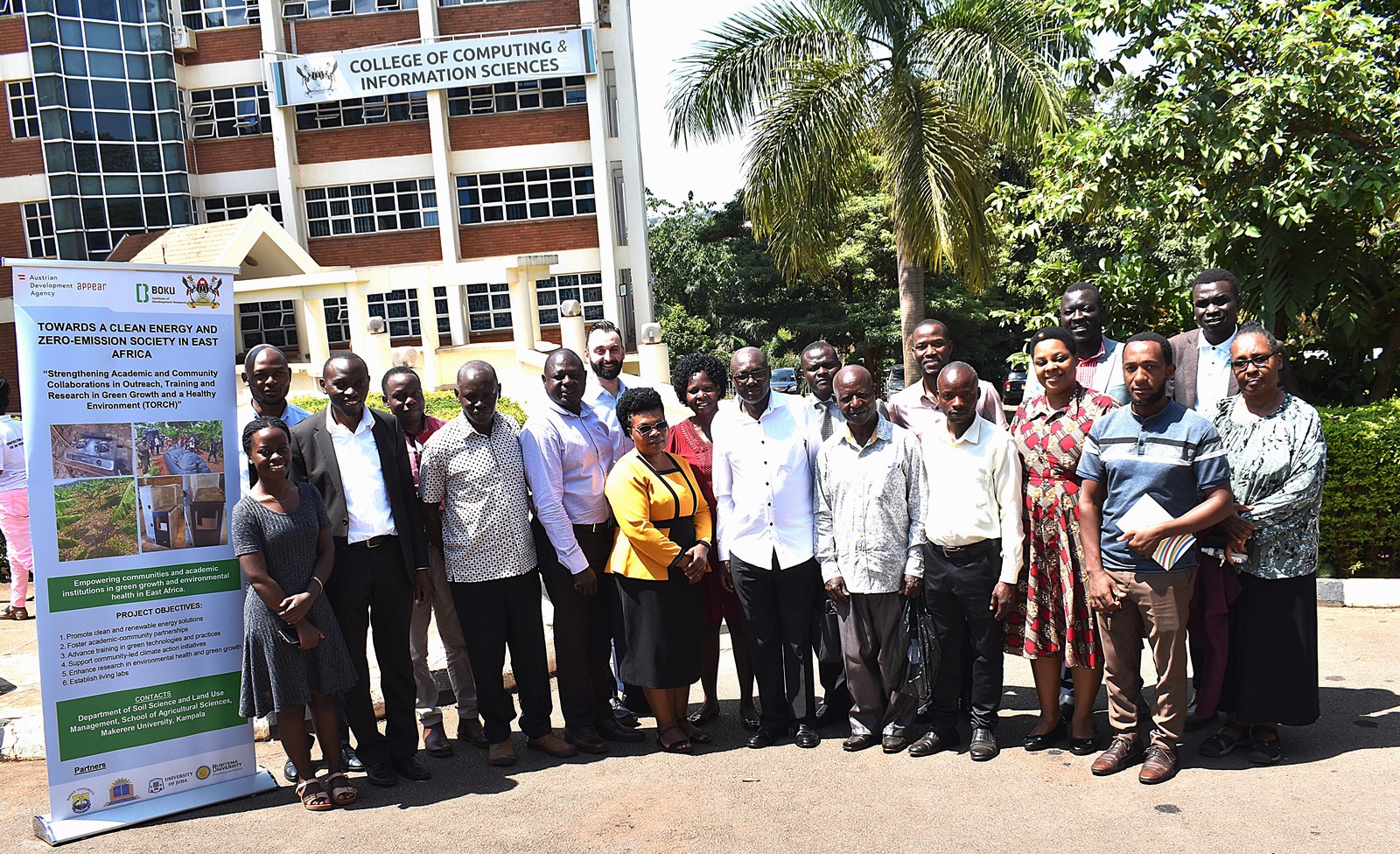
Makerere University, through its Department of Soil Science and Land Use Management at the College of Agricultural and Environmental Sciences (CAES), has launched a new project aimed at fostering green growth and promoting sustainable development across East Africa. This initiative aligns with global efforts to combat climate change and create eco-friendly, low-carbon communities through collaborative research, education, and technology.
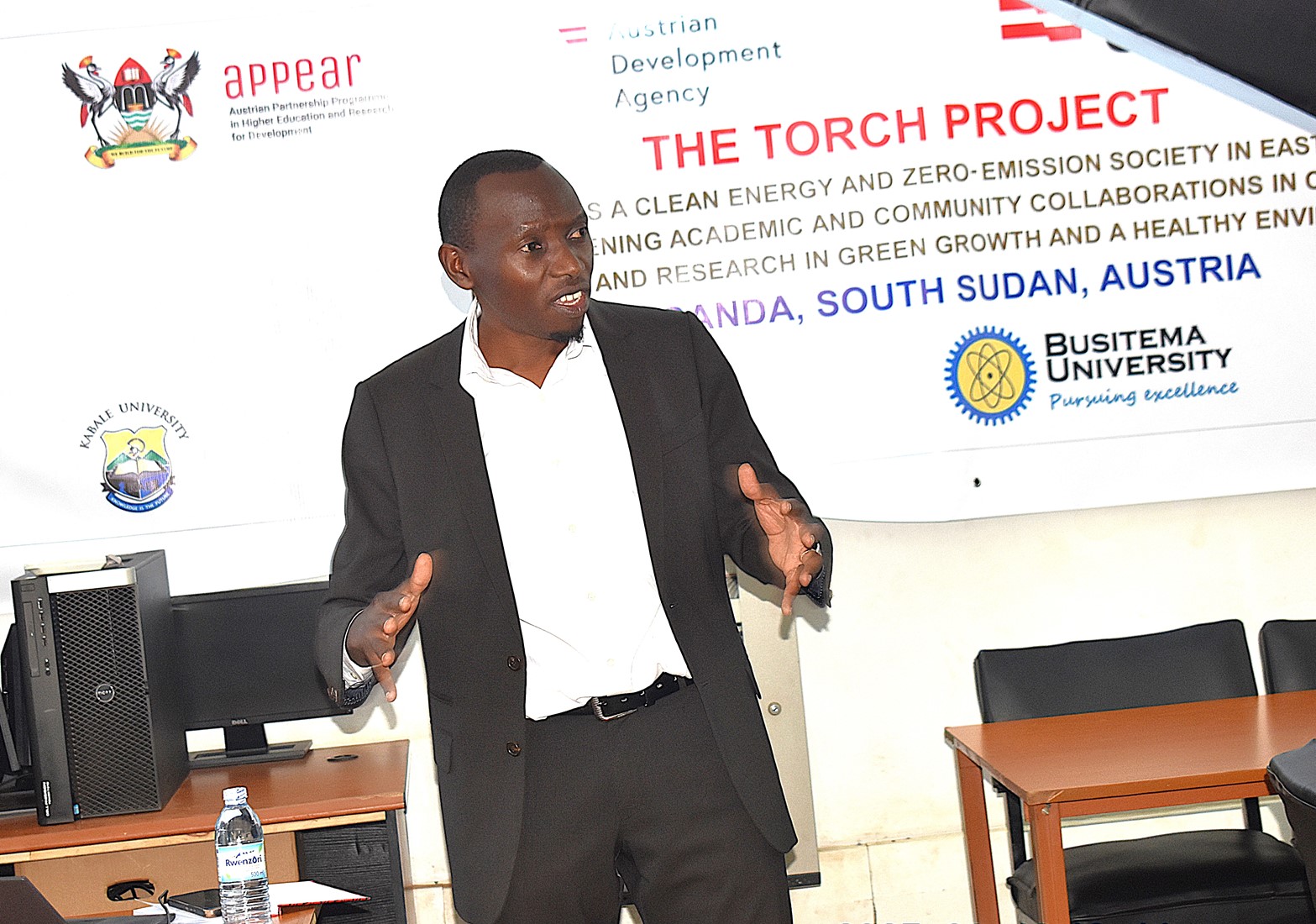
Introducing the TORCH Project: Towards a Clean Energy and Zero-Emission Society
The two-year project, code-named TORCH (Towards a Clean Energy and Zero-emission Society in East Africa), seeks to strengthen cooperation between academia and local communities to promote green growth and environmental sustainability. Funded by the OeAD-GmbH under the Austrian Partnership Programme in Higher Education Research for Development (APPEAR), TORCH focuses on clean energy solutions, carbon emission reduction, and community empowerment through training, research, and co-creation of green technologies.
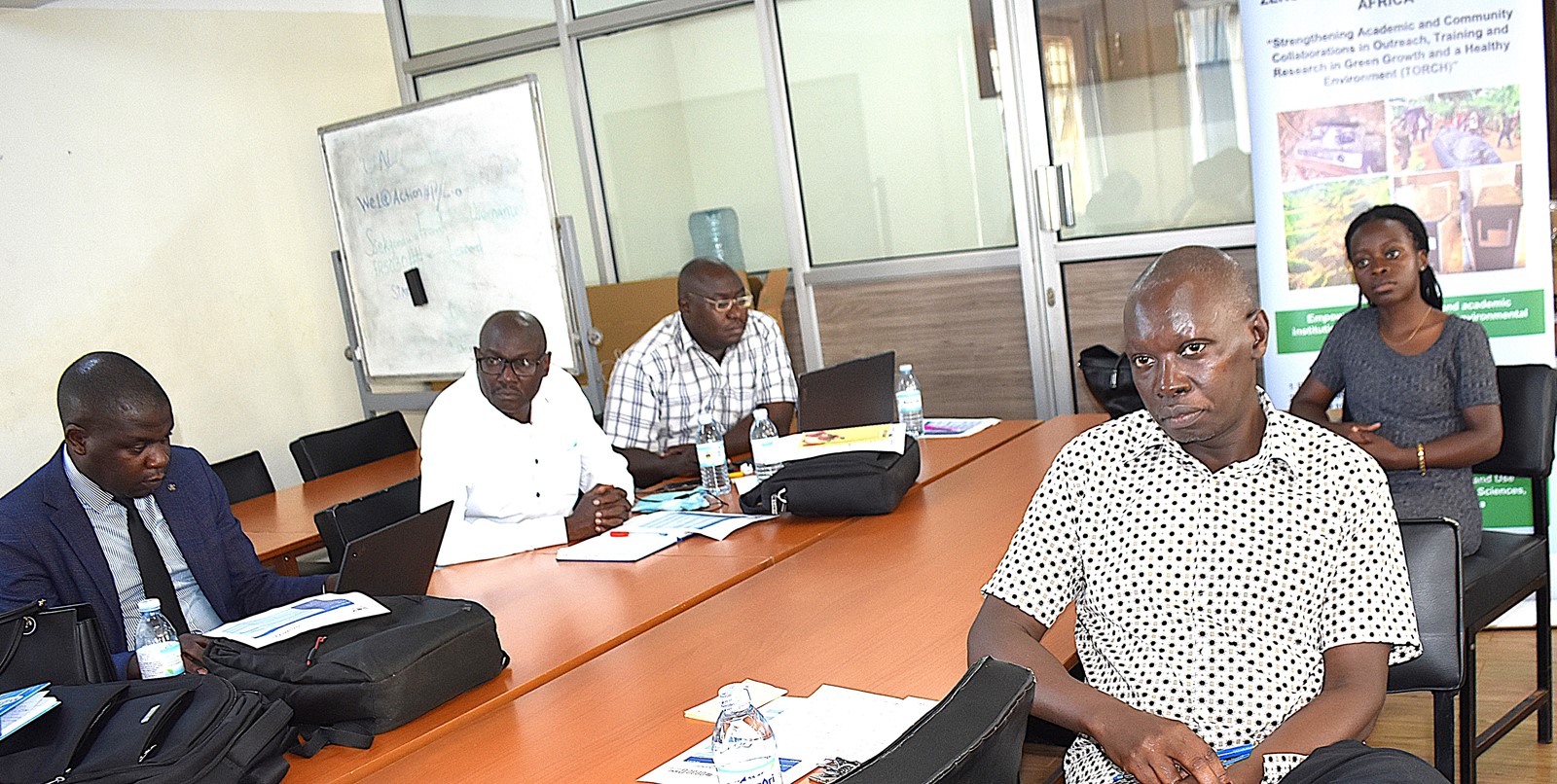
Officially launched by the Principal of CAES, represented by Dr. Paul Mukwaya, Head of the Department of Geography, Geo-Informatics and Climatic Sciences at Makerere University, TORCH builds upon existing East African government policies. The project will implement the innovative concept of living labs, where universities, communities, and stakeholders co-design, co-create, and co-produce affordable, reliable green technologies tailored to local needs.
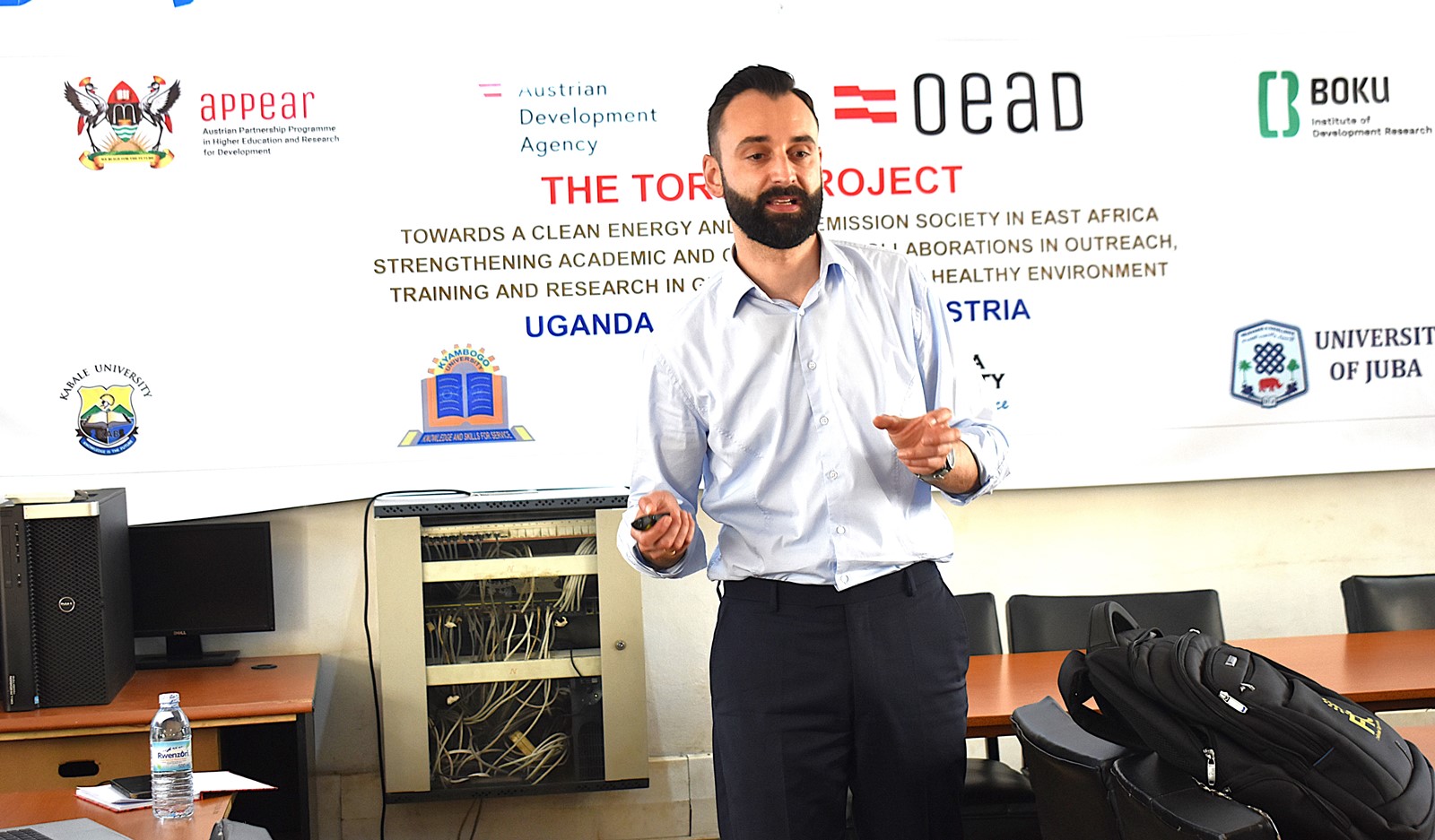
Key Objectives and Activities
TORCH aims to:
- Enhance teaching on green growth by integrating principles into selected academic curricula.
- Establish three living laboratories in Central, South Western, and Eastern Uganda to boost co-creation on energy efficiency and low-carbon emissions.
- Increase human capacity through short courses, field research, and training.
- Empower women in science and technology.
- Promote novel green technologies and support policy transformation.
- Strengthen partnerships among universities in East Africa.
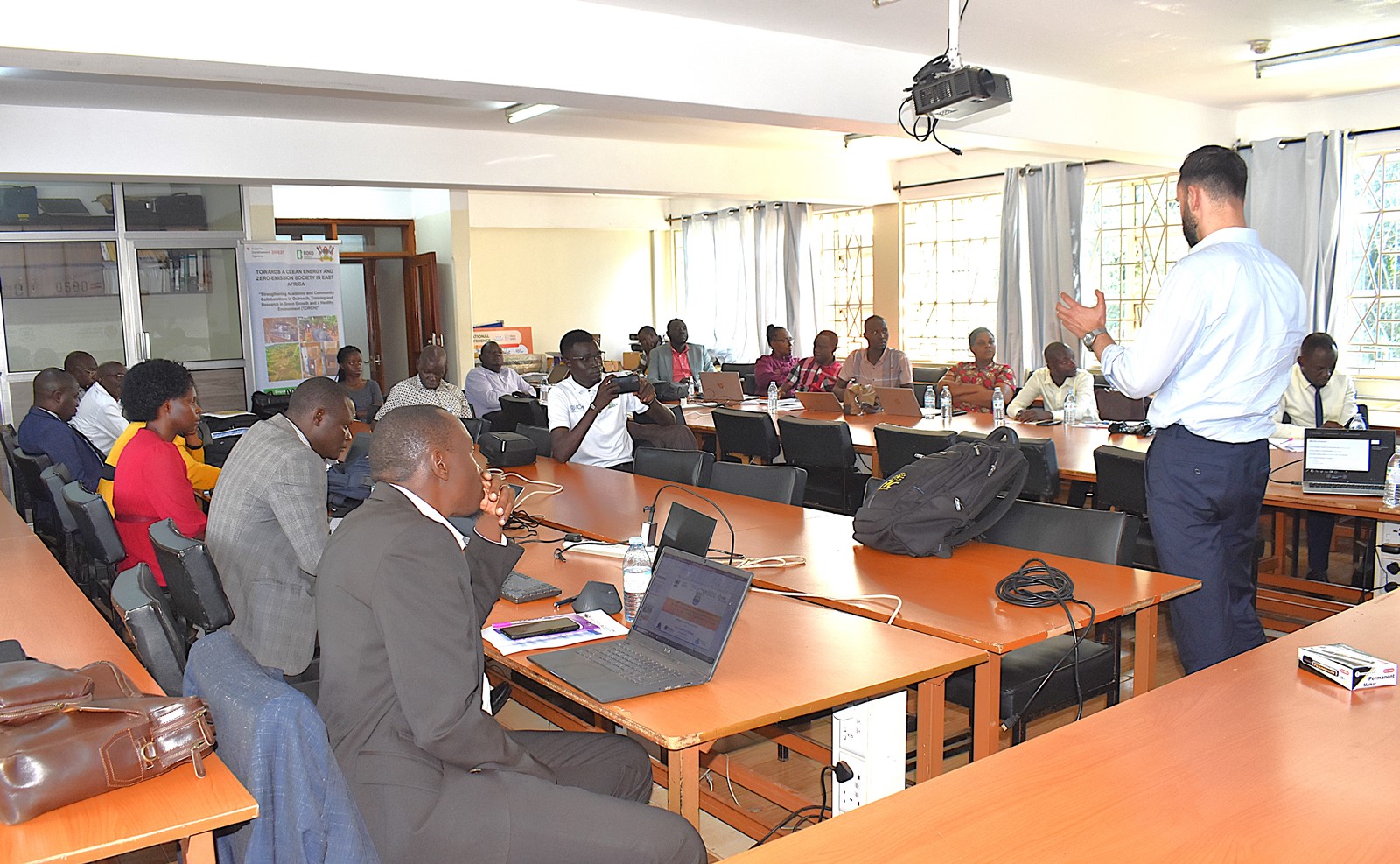
These activities directly contribute to achieving several Sustainable Development Goals (SDGs), including SDGs 4 (Quality Education), 5 (Gender Equality), 6 (Clean Water and Sanitation), 7 (Affordable and Clean Energy), 12 (Responsible Consumption and Production), and 13 (Climate Action), while also reducing health risks and conserving the environment.
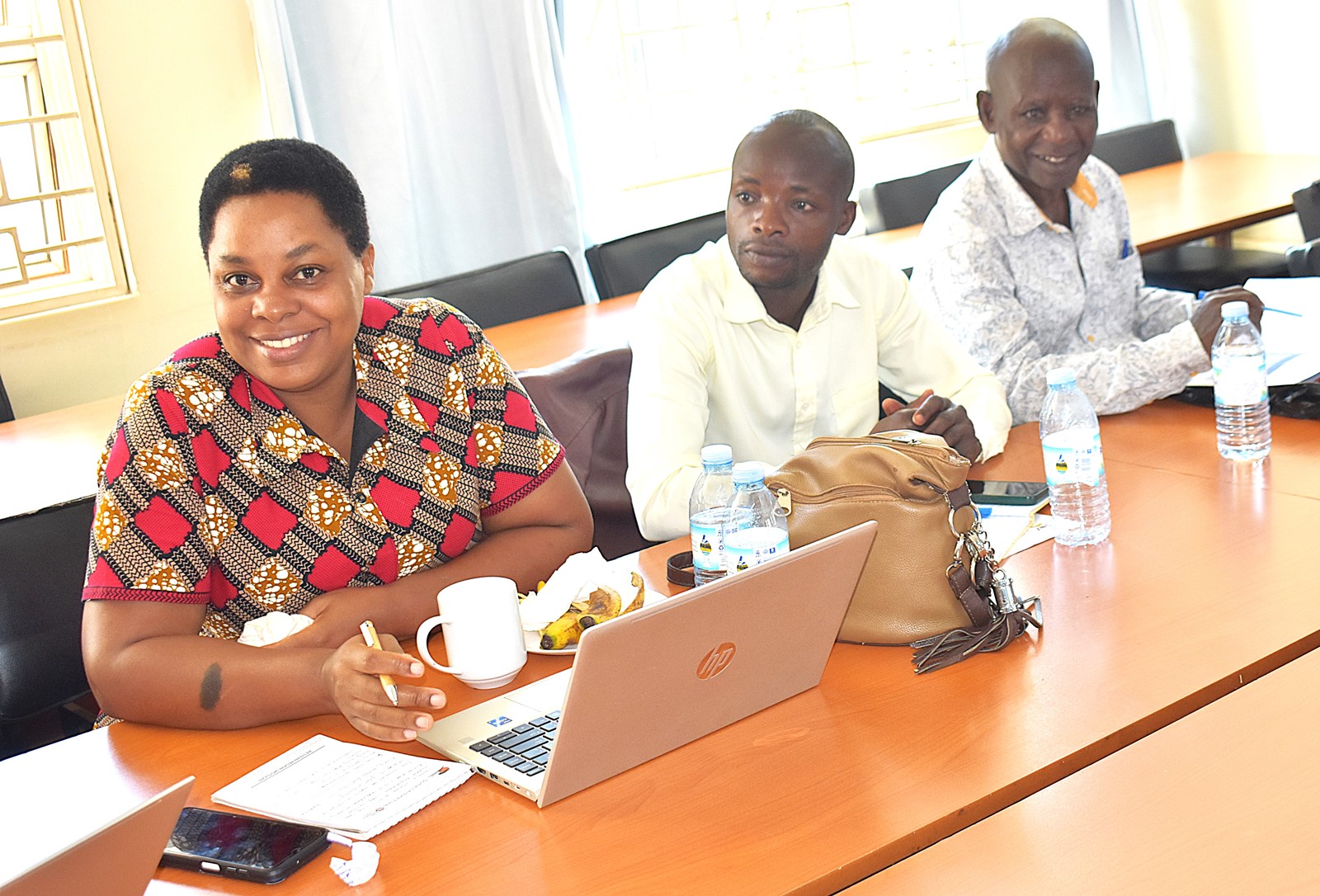
Leadership and Partner Institutions
The overall project coordinator is Dr. Patrick Musinguzi, Lecturer in the Department of Soil Science and Land Use Management at Makerere University. TORCH involves several partner institutions, including: Makerere University (Uganda), University of Natural Resources and Life Sciences, Vienna (Austria), Kabale University (Uganda), Busitema University (Uganda), Kyambogo University (Uganda), and the University of Juba (South Sudan).

Highlights of the Launch Ceremony
During the launch ceremony held in the GIS Lab at Makerere University, and attended by representatives from the partner institutions, Dr. Musinguzi presented an overview of TORCH, outlining key strategies for implementation and expected outcomes. Central to the project’s strategy is the integration of green growth principles into Makerere University’s academic curriculum. This will be formally proposed to the University Management for adoption. Additionally, the project aims to strengthen the university’s research agenda in this critical area. This will involve supporting faculty and student-led research projects and generation of evidence-based insights on green growth to influence policy at both local and national levels. There are also plans to establish three living labs in Central, South Western, and Eastern Uganda to serve as practical hubs for advancing green growth.
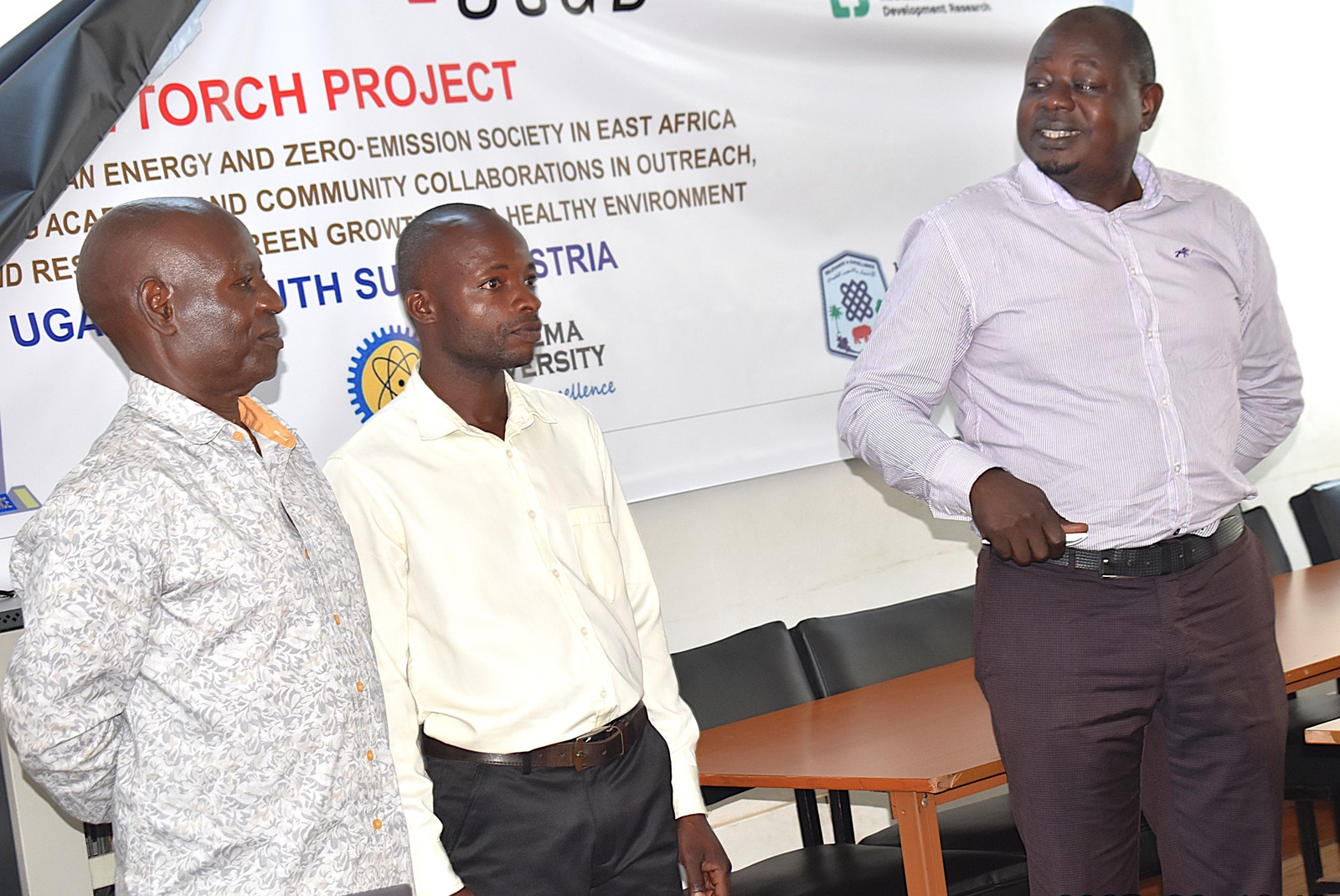
Expert Insights on Community Engagement
In his presentation, Mr. Andreas Bauer from the University of Natural Resources and Life Sciences, Vienna provided valuable insights into the critical role that living labs play in promoting sustainable, green growth. Highlighting practical examples and innovative approaches, Mr. Andreas Bauer emphasized how living labs serve as dynamic platforms for collaboration between researchers, industry stakeholders, and local communities, enabling real-world experimentation and the development of eco-friendly solutions that drive environmental and economic progress.
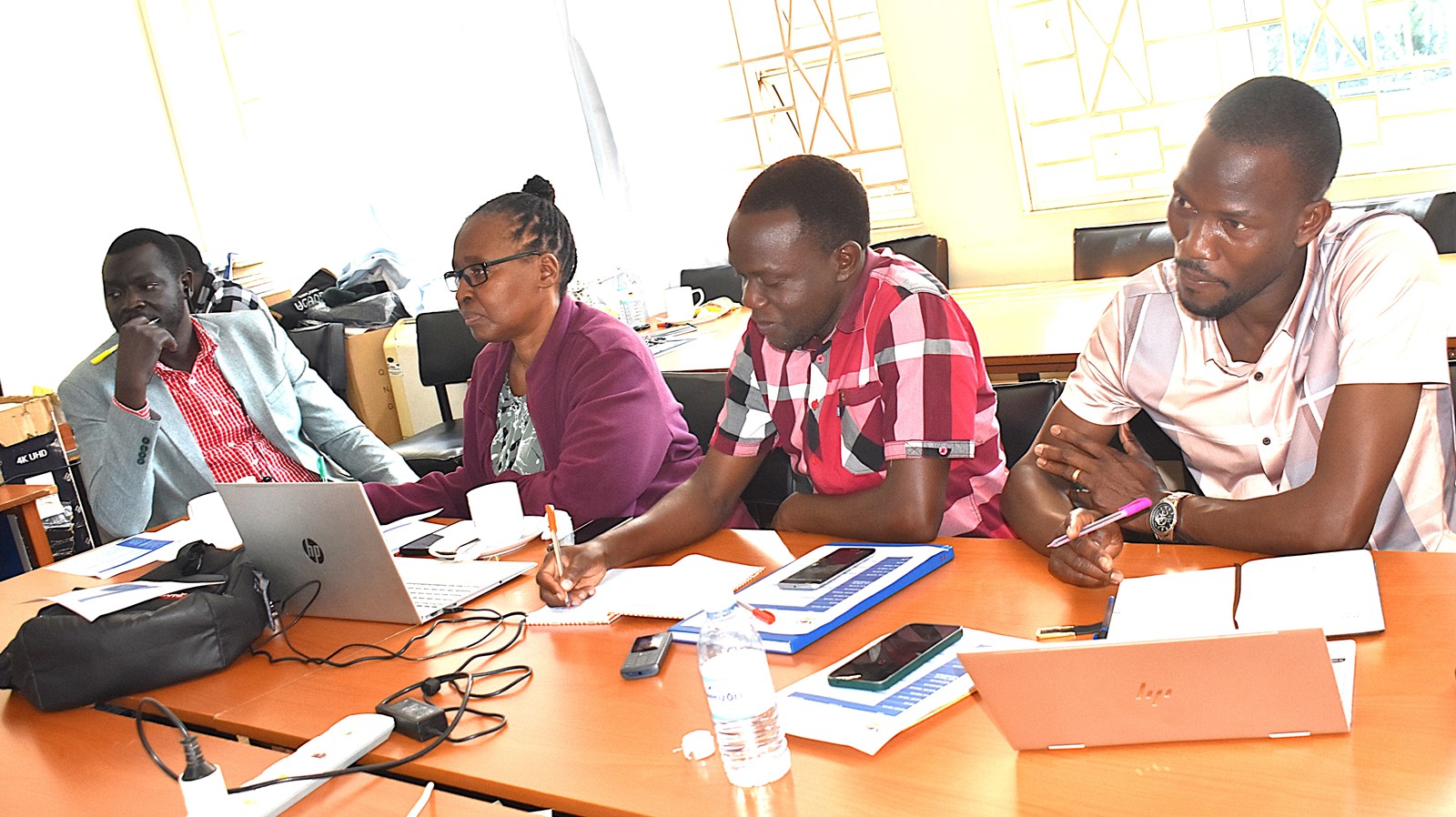
To emphasize the importance of collaboration between local communities and the academia, Mr. Kayanja Susane, a farmer from Kawumu Village in Luweero District, explained that, with guidance and support from the project team, he learned to produce biogas from animal waste -a reliable source of energy that reduces dependence on traditional fuels, subsequently minimizing environmental degradation.
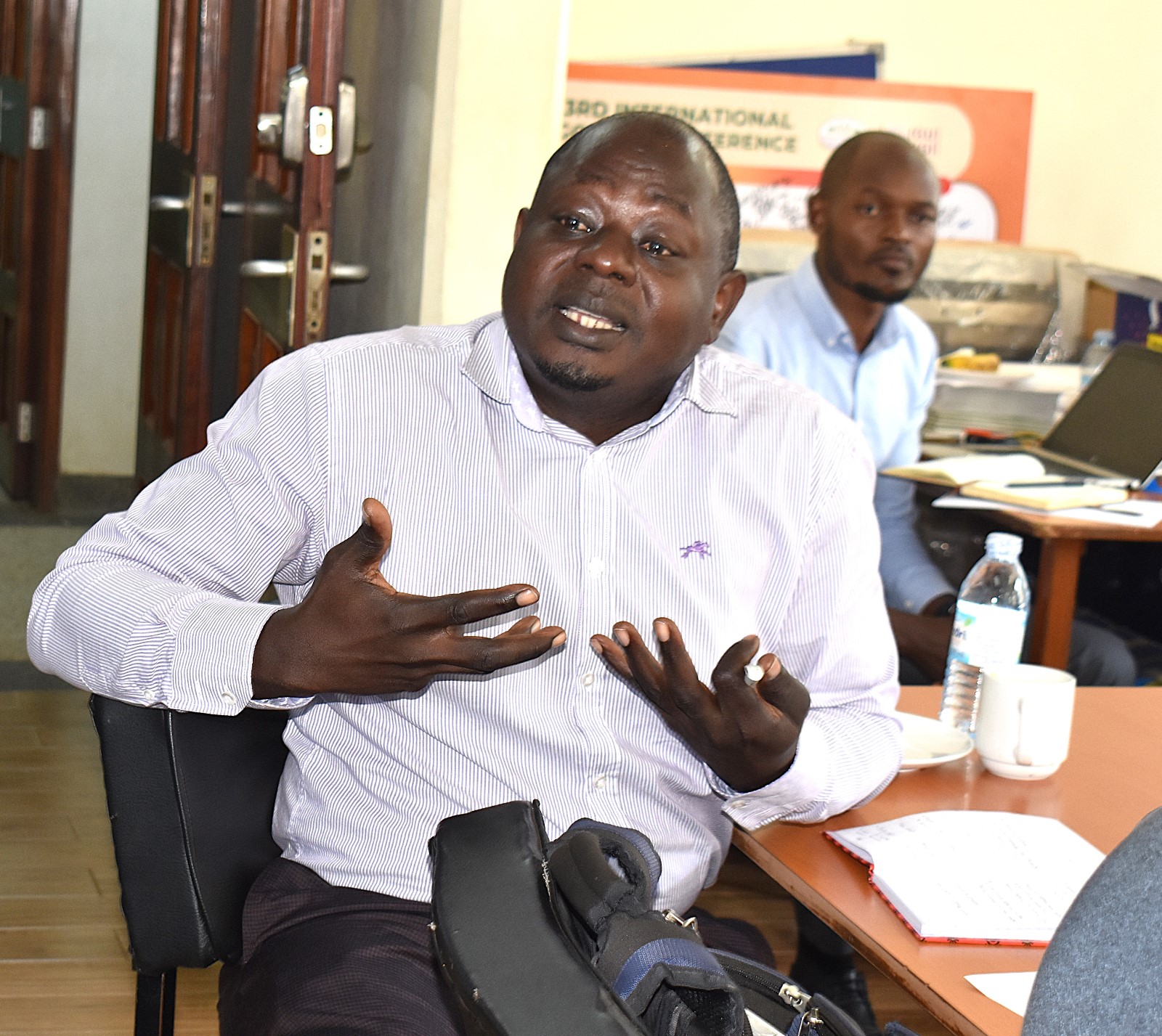
Research Focus
As part of the strategy to guide implementation, the project team brainstormed potential ecological and social indicators of low emissions in homesteads, and proposed several research areas to support green growth. Proposed research areas include:
- Life cycle analysis
- Circular economy practices within homesteads
- Gender integration and the intersection of gender with green growth
- The role of livestock in promoting green growth
- Evaluating the impact of interventions on total emissions
- Barriers to adopting green innovations
- The use of indigenous knowledge in promoting green growth
Addressing the participants, the Principal of the College of Agricultural and Environmental Sciences (CAES), represented by Dr. Paul Mukwaya, Head of the Department of Geography, Geo-Informatics, and Climatic Sciences at Makerere University, commended the project as a timely initiative aligned with the University’s research agenda. He underscored the importance of collaborating with other stakeholders, noting that similar projects have been conducted within and outside Makerere. Dr. Mukwaya called for the adoption of the theory of change framework to ensure the project delivers measurable, sustainable impacts that extend beyond policy briefs and gender mainstreaming, ultimately contributing to lasting green transformation in the region. He expressed appreciation to the project funders for their unwavering support to Makerere University.
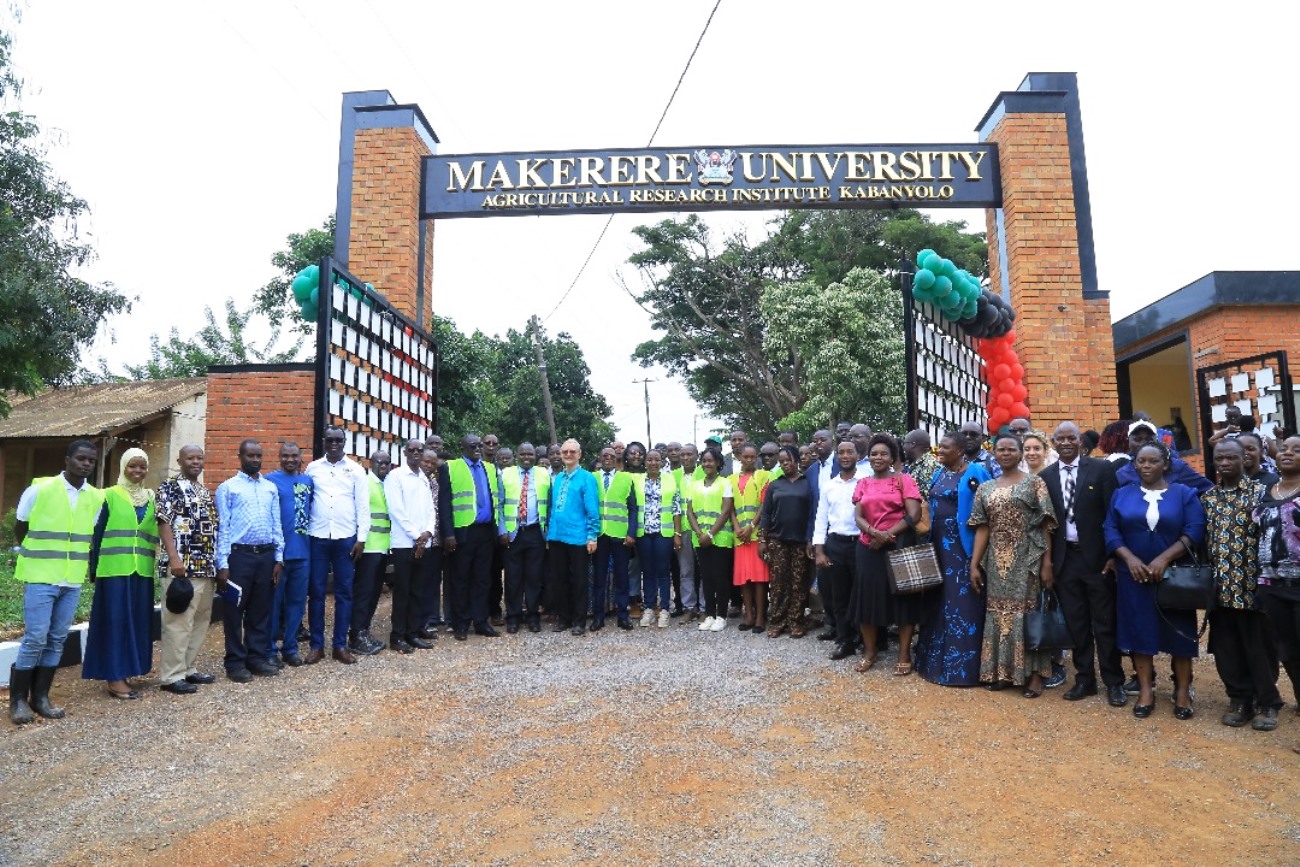
Refurbished gate to boost the institute’s aesthetics, security, accessibility, and sustainability
Makerere University College of Agricultural and Environmental Sciences (CAES) has completed the refurbishment of the main gate at the Makerere University Agricultural Research Institute Kabanyolo (MUARIK). The renovation was carried out by students from both CAES and the College of Engineering, Design, Art, and Technology (CEDAT), under the supervision of their academic mentors.
According to the Principal of CAES, Prof. Gorettie Nabanoga, the revamped gate now truly reflects the spirit of Makerere University and will significantly enhance the institute’s visual appeal, security, accessibility, and sustainability. The refurbished gate was officially commissioned by the Vice Chancellor, represented by the First Deputy Vice Chancellor in charge of Academic Affairs, Prof. Buyinza Mukadasi. The ceremony was attended by the Deputy Vice Chancellor in charge of Finance and Administration, Prof. Winston Tumps Ireeta, alongside CAES staff, students, and partners.
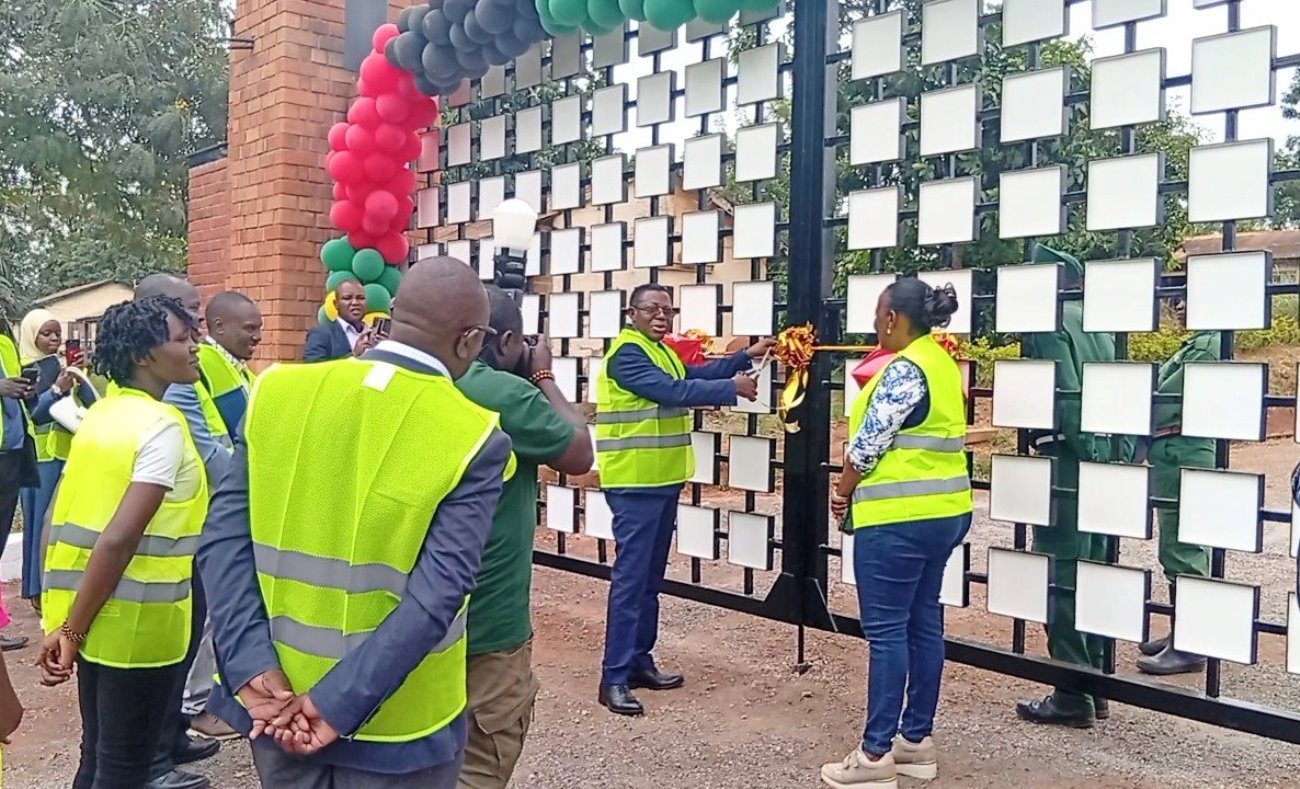
About MUARIK
Established in 1953, MUARIK serves as a hub for numerous research projects and facilities within CAES. It houses centres such as the Makerere University Regional Centre for Crop Improvement (MaRCCI), the Makerere University Centre for Soybean Improvement and Development (MakCSID), the Continuing Agricultural Education Centre (CAEC), the Centre of Excellence in Waste Management, and the Consortium for Enhancing University Responsiveness to Agribusiness Development (CURAD).
Additionally, MUARIK hosts KOICA-funded projects, including a modern layers production unit and a climate-controlled greenhouse for vegetable production. These units operate independently but collectively contribute to MUARIK’s dynamic research environment.
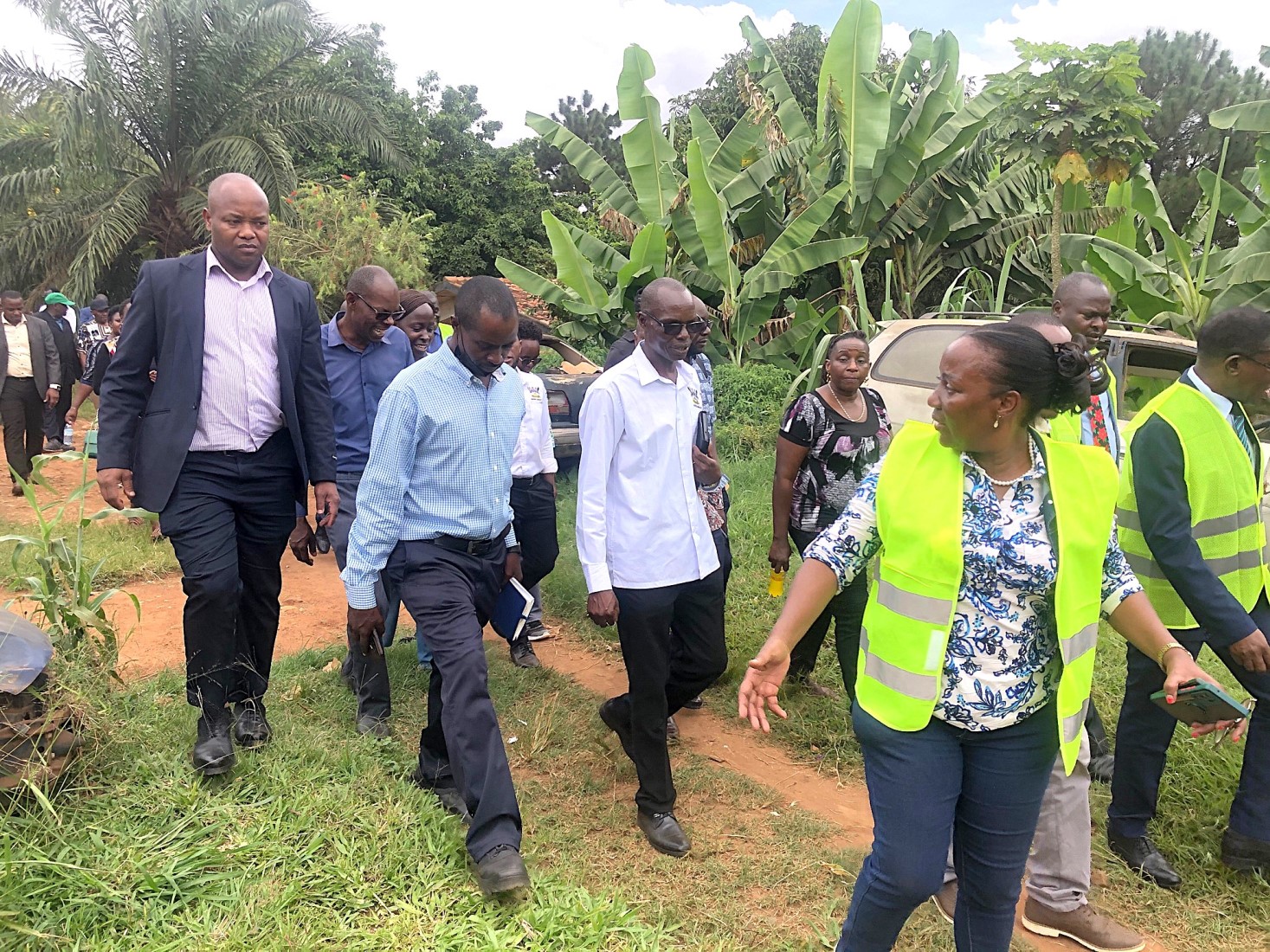
MUARIK also houses research units for the School of Agricultural Sciences (SAS) such as the Biotechnology and Tissue Culture Laboratories, experimental fields, Horticulture and Livestock Units, and the black soldier fly project. It accommodates training and research facilities for the Schools of Food Technology, Nutrition, Bioengineering, and the School of Forestry, Environmental, and Geographical Sciences. It also hosts hostels for both local and international students who stay at the Institute to gain practical experience in production and research under typical farming conditions.
Enterprises and Research at MUARIK
Enterprises at MUARIK include approximately 100 acres of pastures, a dairy farm, feed mill, silage production, poultry unit, piggery unit, banana and coffee plantations, maize and soybean crops, horticulture, goat farming, and the recently revived rabbit unit featuring four breeds: New Zealand White, Chinchilla, California White, and Flemish Giant.
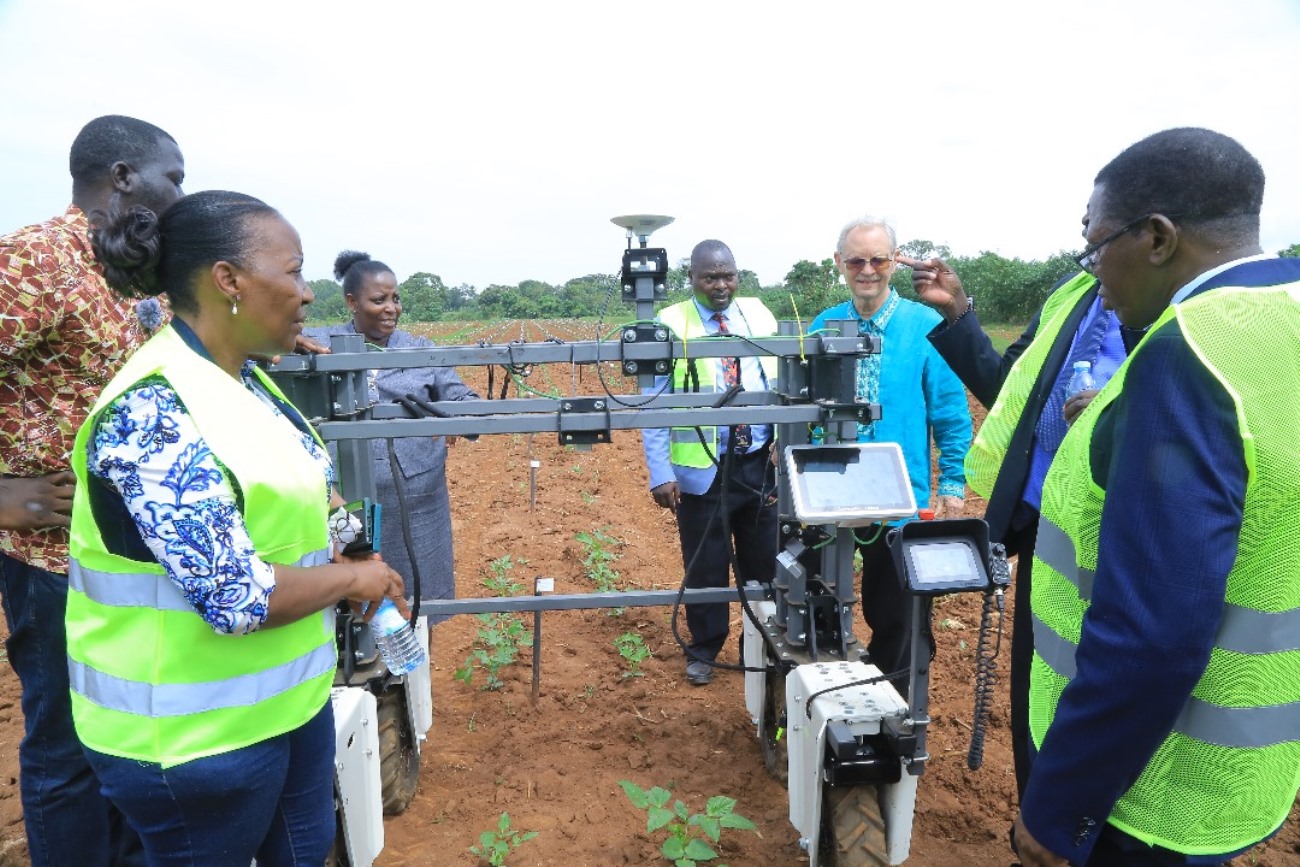
Current research initiatives focus on edible insects and worms as alternative livestock feeds, agroforestry, horticulture, and value addition in food processing. MUARIK maintains a strong partnership with the Uganda Flowers Exporters Association (UFEA), collaborating on the commercial testing of new flower species to diversify Uganda’s flower exports beyond traditional rose bouquets. Collaborative efforts also include identifying native natural enemies to control Chrysanthemum pests, working with UFEA, Wageningen University, breeders, and the National Agricultural Research Organization.
As part of Uganda’s National Agricultural Research System (NARS), MUARIK prioritizes research in biotechnology, tissue culture, plant breeding, improved farming methods, agro-processing, value addition, and marketing.
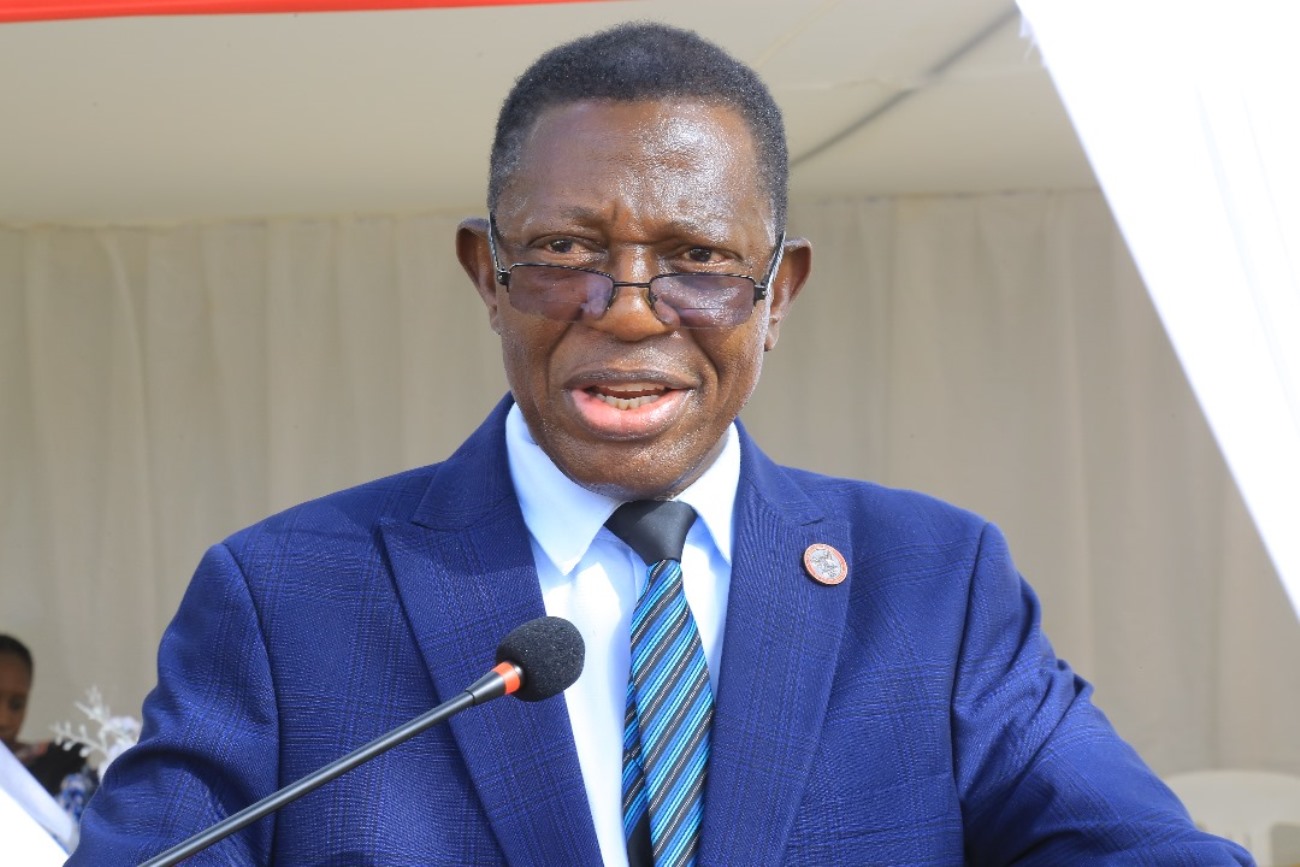
Tour to Assess the Capacity and Condition of Facilities at MUARIK
As part of the commissioning ceremony, the Principal of CAES, Prof. Gorettie Nabanoga, led visitors on a comprehensive tour of the Makerere University Agricultural Research Institute, Kabanyolo (MUARIK). The purpose of the tour was to provide first-hand insight into the institute’s current infrastructure, operational capacity, and ongoing challenges.
During the visit, Prof. Nabanoga highlighted both the strengths and limitations of the institute. While the tour showcased MUARIK’s potential as a hub for agricultural research and innovation, it also brought to light a number of critical issues affecting its functionality. Chief among these is the persistent challenge of land encroachment, which continues to threaten the integrity and sustainability of the institute’s operations.
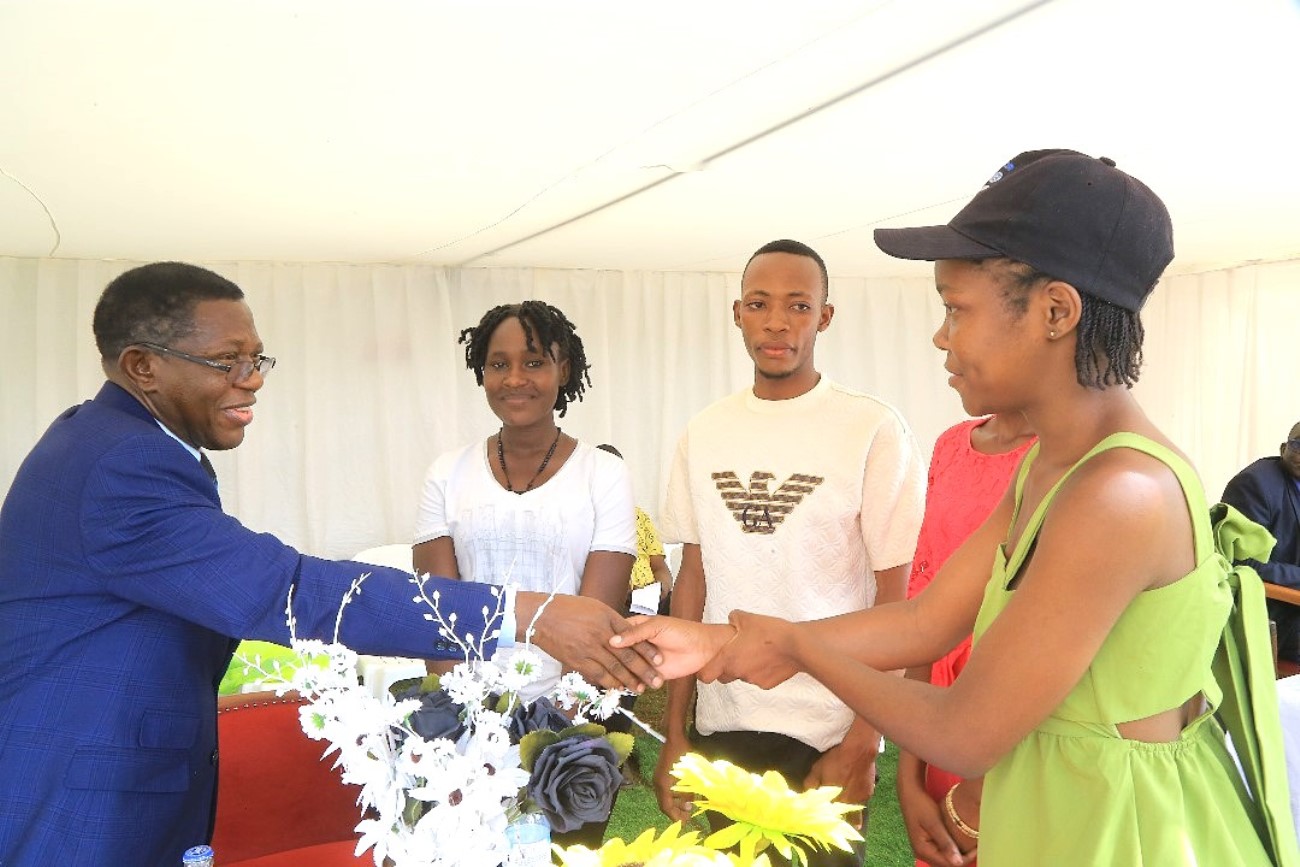
In her remarks, Prof. Nabanoga commended Dr. Cyrus Ongom, the outgoing Director of MUARIK, for his unwavering dedication to safeguarding the institution’s land. She acknowledged his resolute efforts in the face of persistent threats and numerous challenges, emphasizing the vital role he played in preserving MUARIK’s integrity. “This year, we aim to further reposition MUARIK as a leading centre for agricultural innovation and production in the region,”said Prof. Nabanoga. “Our focus will be on strengthening research, fostering partnerships with stakeholders, and enhancing the capacity of our infrastructure to support sustainable and impactful agricultural practices.”
The Principal expressed gratitude to all who have supported the transformation journey of CAES. “As we celebrate our achievements today, we take this moment to recognize and honour everyone who has been part of our transformation journey,” the Principal said. “We are especially grateful to the Vice Chancellor, Prof. Barnabas Nawangwe for his unwavering support, which has been instrumental in driving the College forward.”
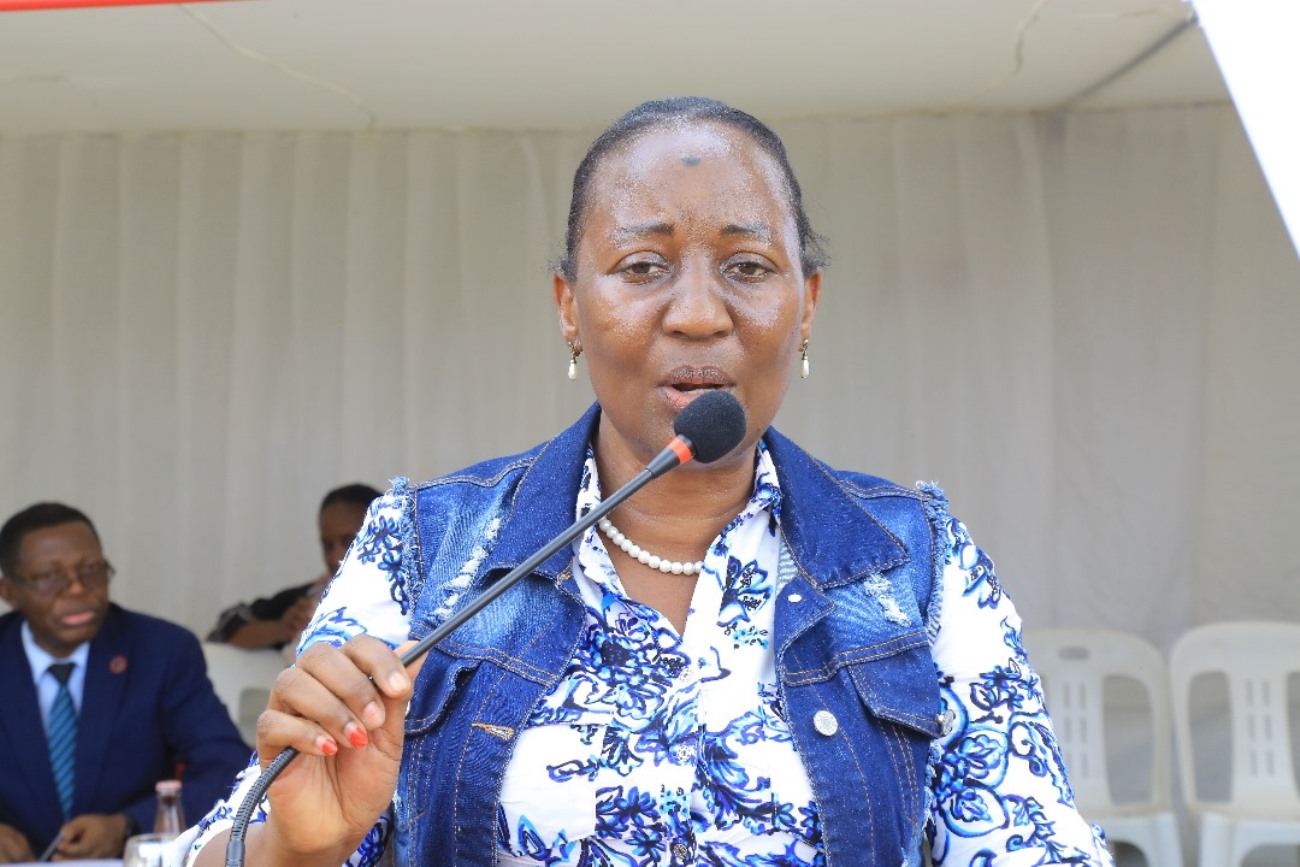
Delivering his remarks, the Deputy Vice Chancellor in charge of Academic Affairs (DVCAA), Prof. Buyinza Mukadasi, commended the CAES for its remarkable achievements in training and research.
“From my assessment, CAES has consistently excelled across its core mandates – training, research, production, and community outreach. The College has played a crucial role in advancing the agricultural sector through innovative research, high-quality academic programmes, and meaningful community engagement. These efforts have made a significant contribution to Uganda’s national development goals and the transformation of its agricultural landscape. Given its demonstrated success and strategic relevance, CAES is highly deserving of enhanced investment and funding to further expand its impact,” he stated.
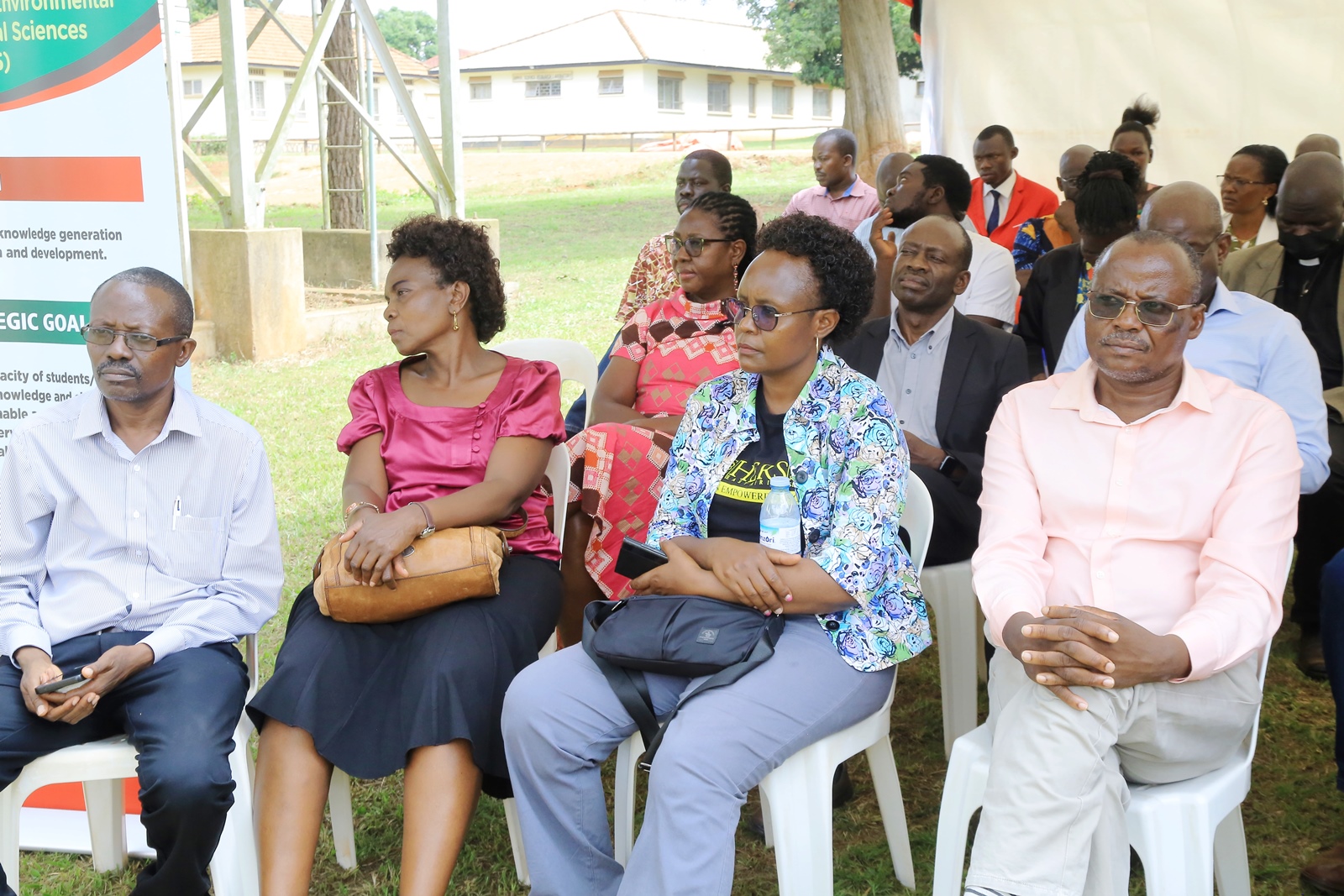
CAES Annual Awards and Staff Recognition Ceremony
The CAES Annual Awards and Staff Recognition Ceremony celebrated the outstanding achievements of dedicated teaching, administrative, and support staff. During this special event, several members of staff were acknowledged and honoured for their exceptional performance, commitment, and contributions to the College’s success.
Commenting on the significance of the awards, Prof. Buyinza praised the initiative, emphasizing that such recognition serves as a powerful motivator. He highlighted how acknowledging excellence not only boosts morale but also inspires continued dedication and fosters a culture of high performance.
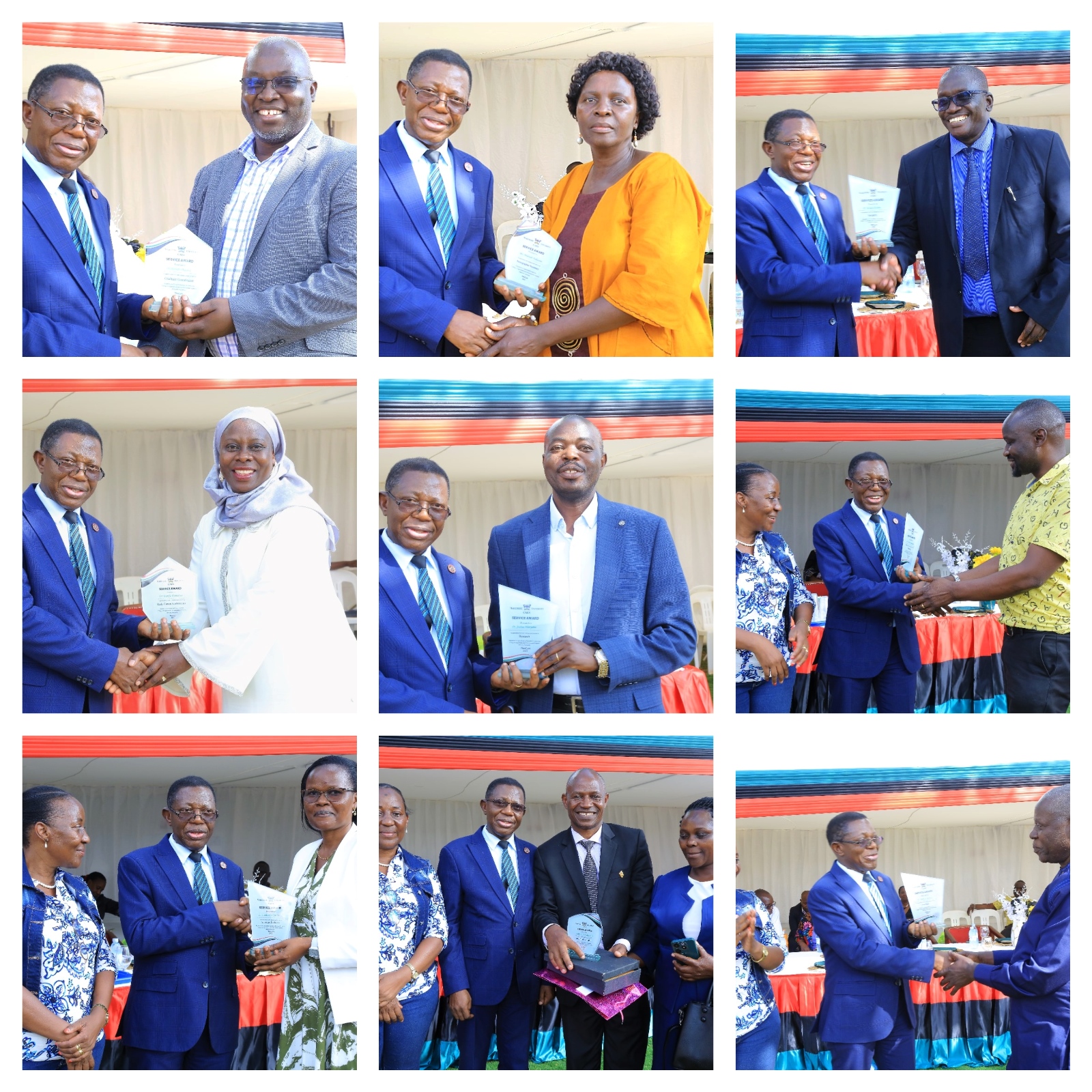
Click on the link below to access the list of staff recognized for exceptional performance.
More pictures from the event
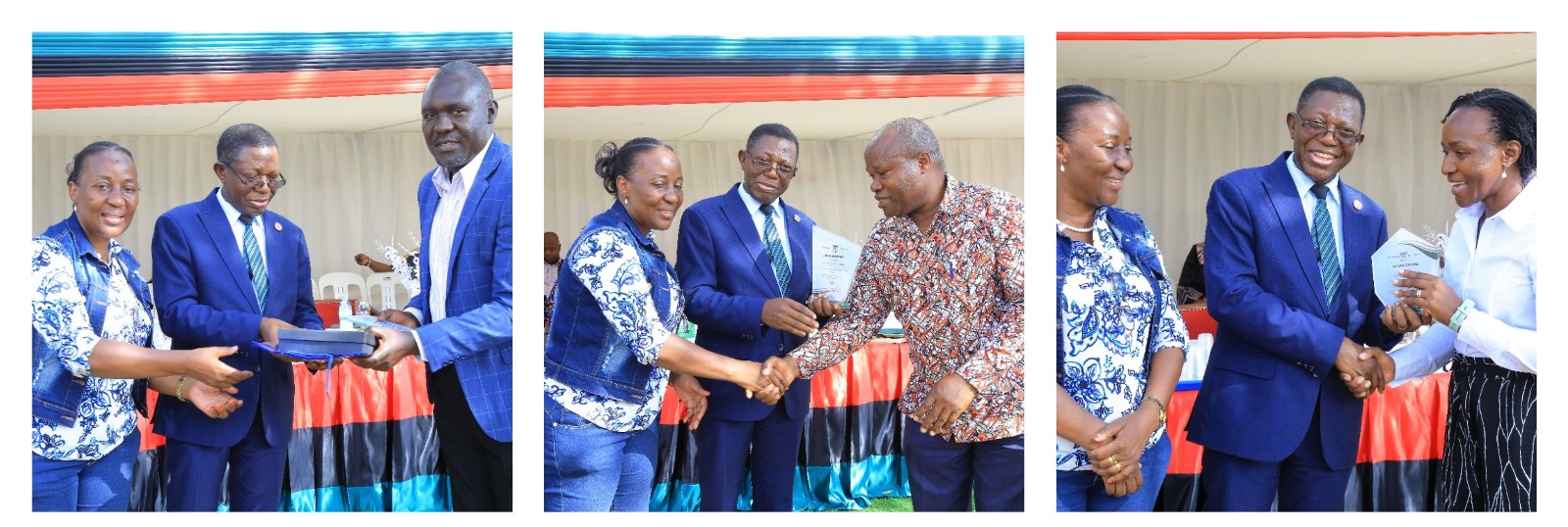
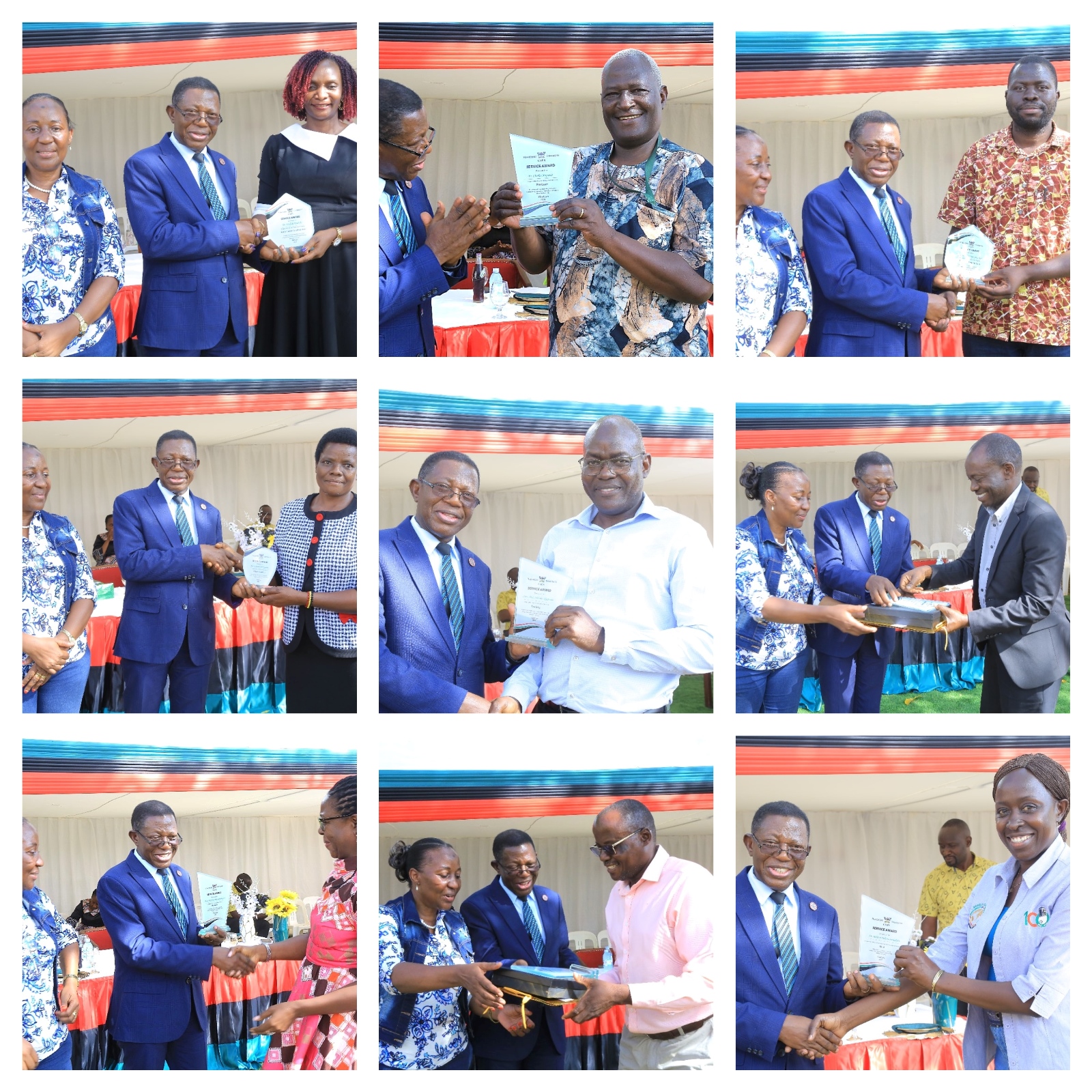
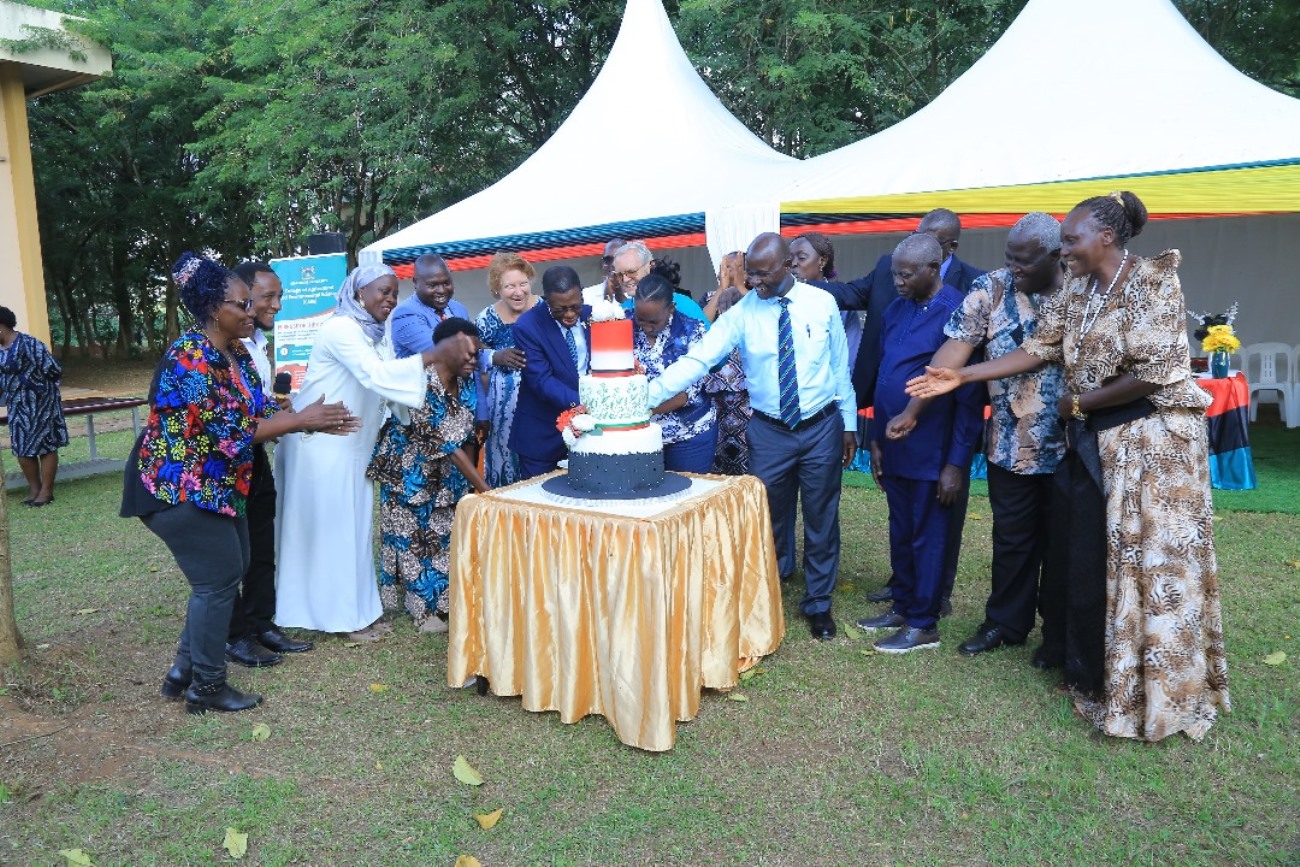
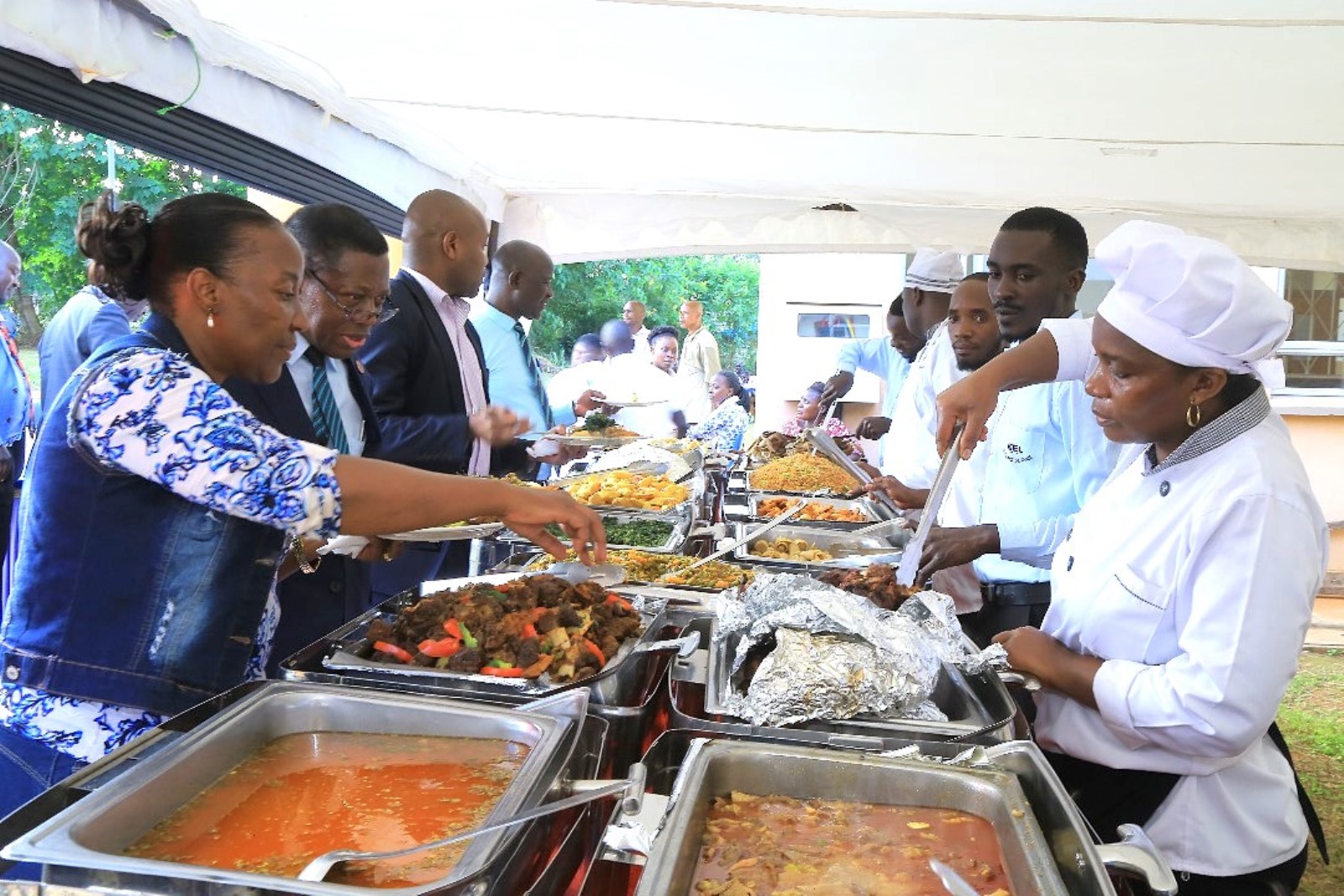
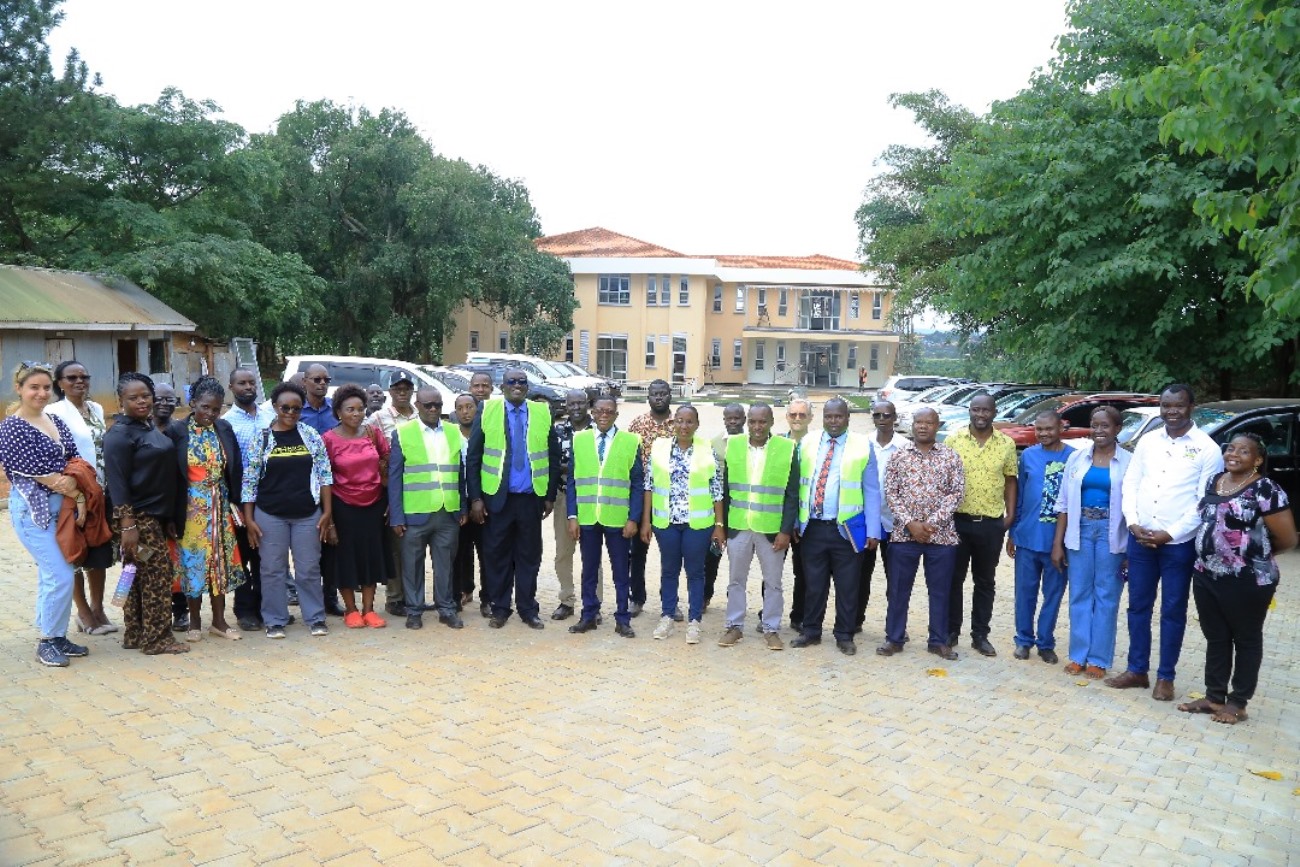
Trending
-

 General3 days ago
General3 days agoMature Age Scheme Exam Results for 2025/2026
-

 General6 days ago
General6 days agoFreshers’ Joining Instructions 2025/2026
-

 General1 week ago
General1 week agoMastercard Foundation Board pays its inaugural visit to Makerere University
-

 General1 week ago
General1 week agoUVCF Makes Case for HEAC Programme
-

 Natural Sciences2 weeks ago
Natural Sciences2 weeks agoCoNAS Participates in the 2025 National Science Week Exhibition
